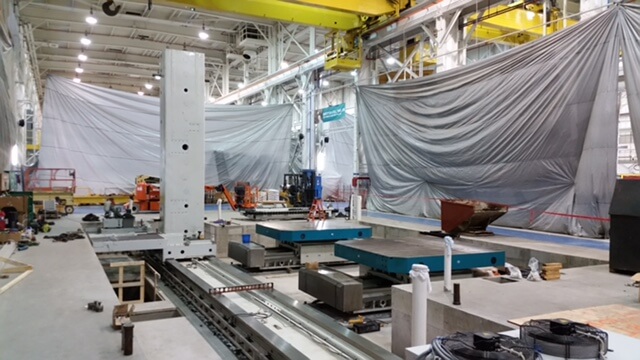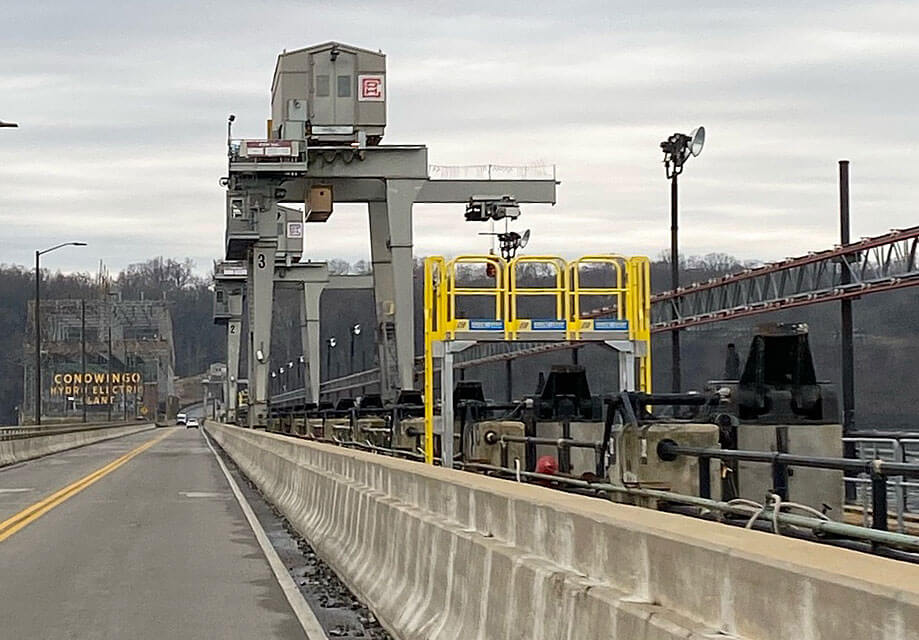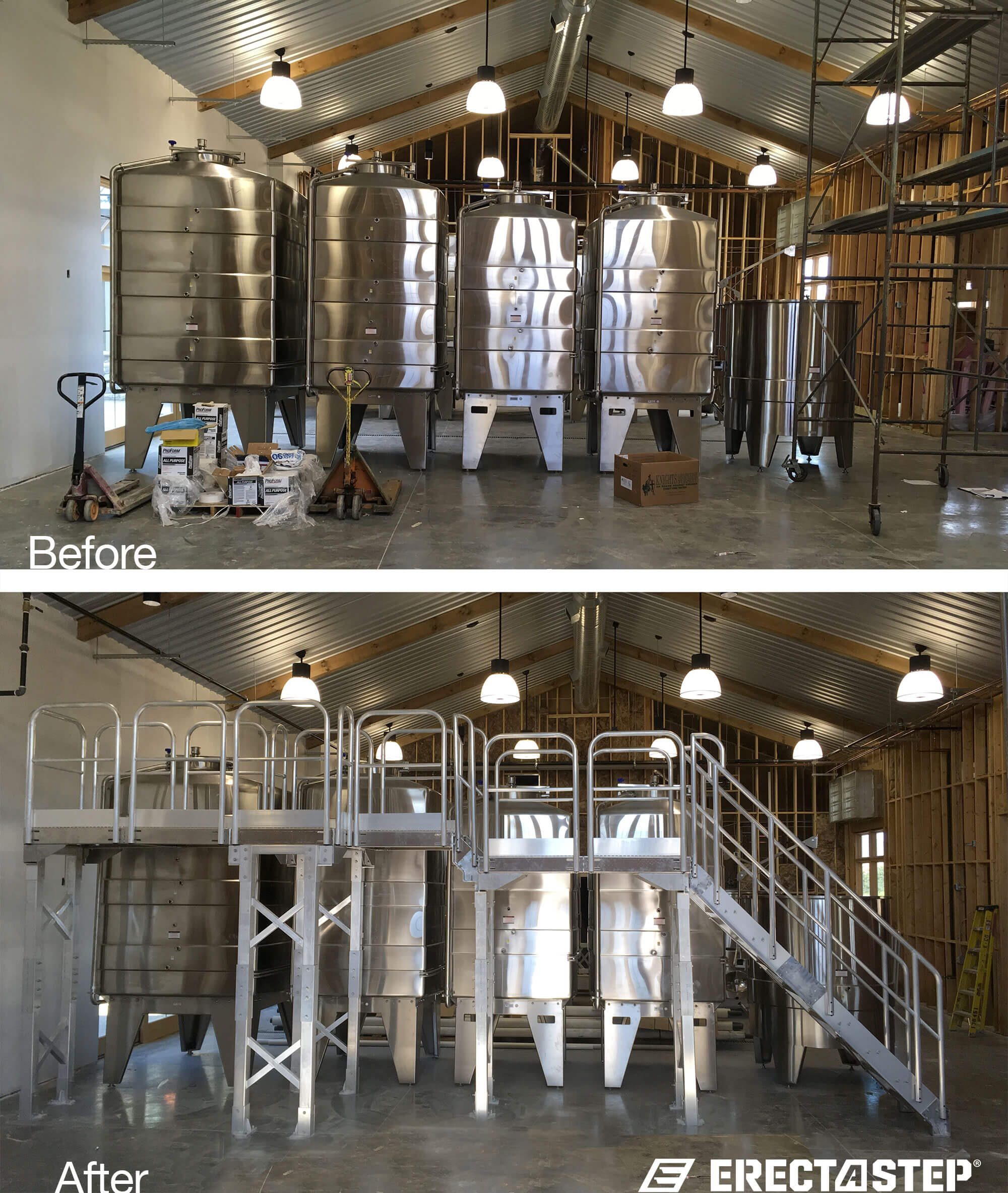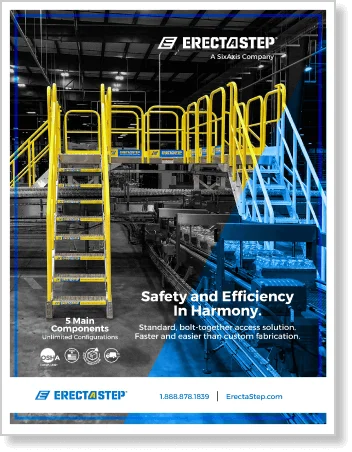Our stair experts have designed and configured thousands of industrial stair solutions globally. Because of the many installations, we’ve assembled a list of common industrial stair configurations with installation photos.
Industrial metal stairs are essential in various settings, ensuring safety and productivity. “Properly configured industrial stairs are a critical component of workplace safety. Ensuring they meet OSHA standards not only protects workers but also enhances overall operational efficiency.”
These stairs are designed to meet OSHA standards and provide secure access in industrial environments. From accessing HVAC units on rooftops to providing safe passage over obstacles, the right stair configuration can significantly enhance workplace safety and efficiency. This guide explores different industrial metal stair configurations and their applications.
Common Stair Configurations
Industrial metal stairs come in various configurations, each designed to address specific needs and environments. Here are some common configurations and their use cases:
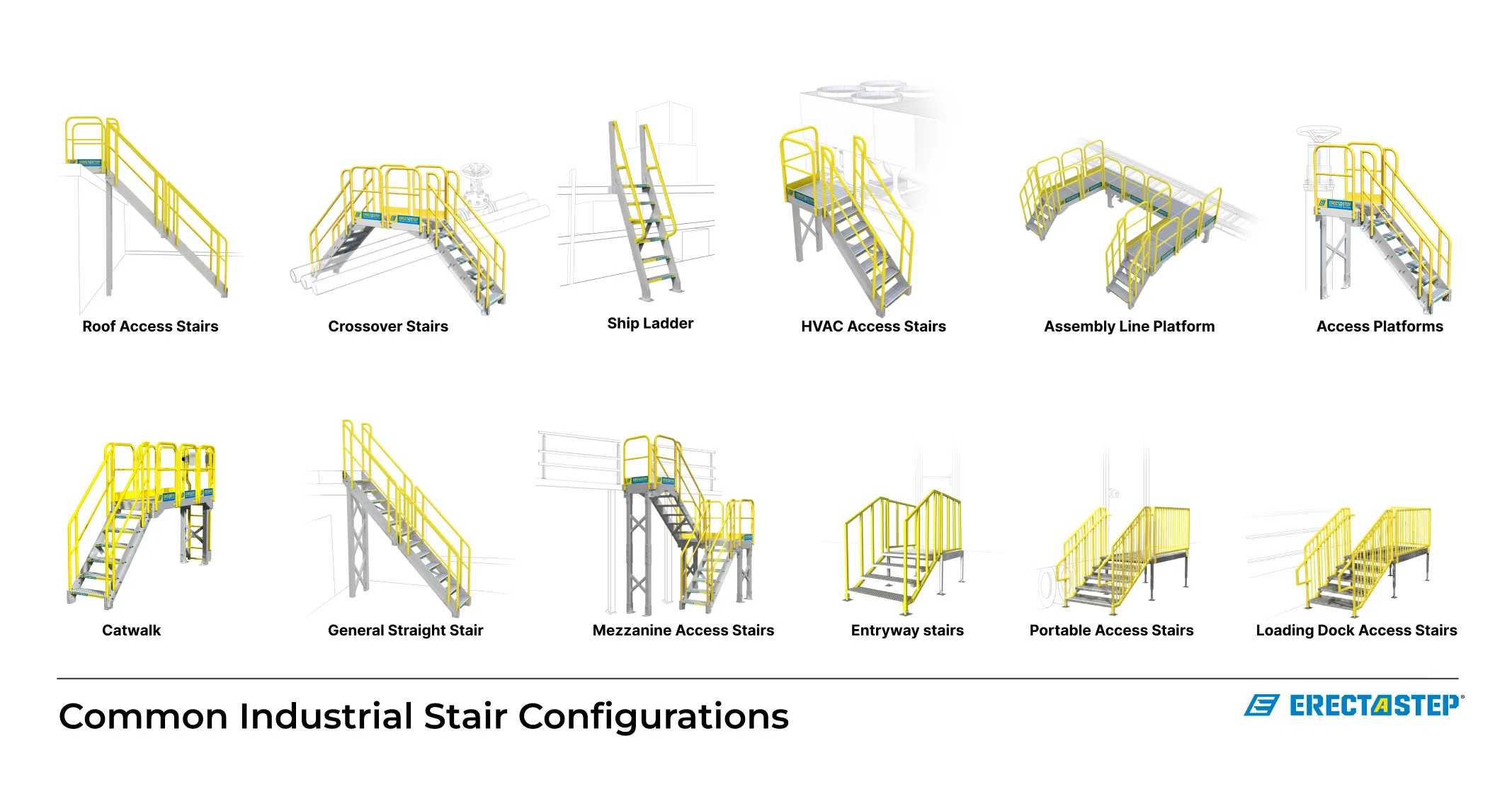
Stair Configurations
Metal Stairs
Metal stairs are built to last, so they can be used in general industrial practices. ErectaStep metal stairs are prefabricated and modular and are designed to meet OSHA standards, which is convenient for stairs widely incorporated in industrial premises like factories, warehouses, and other buildings where stable and solid stairs are required.
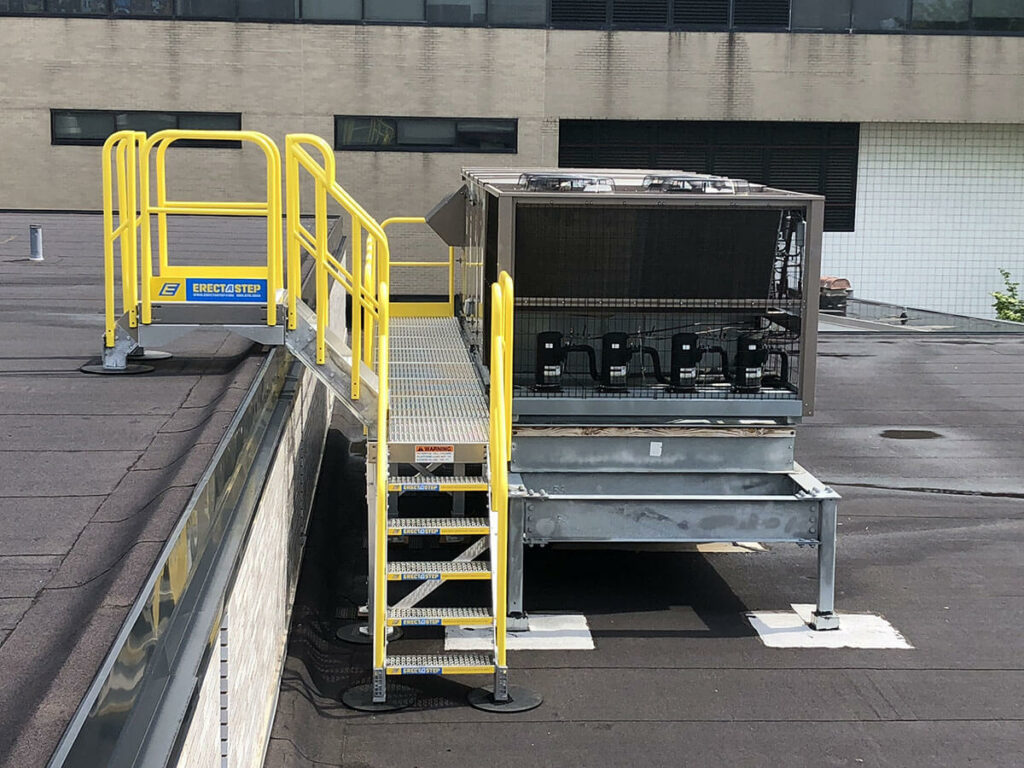
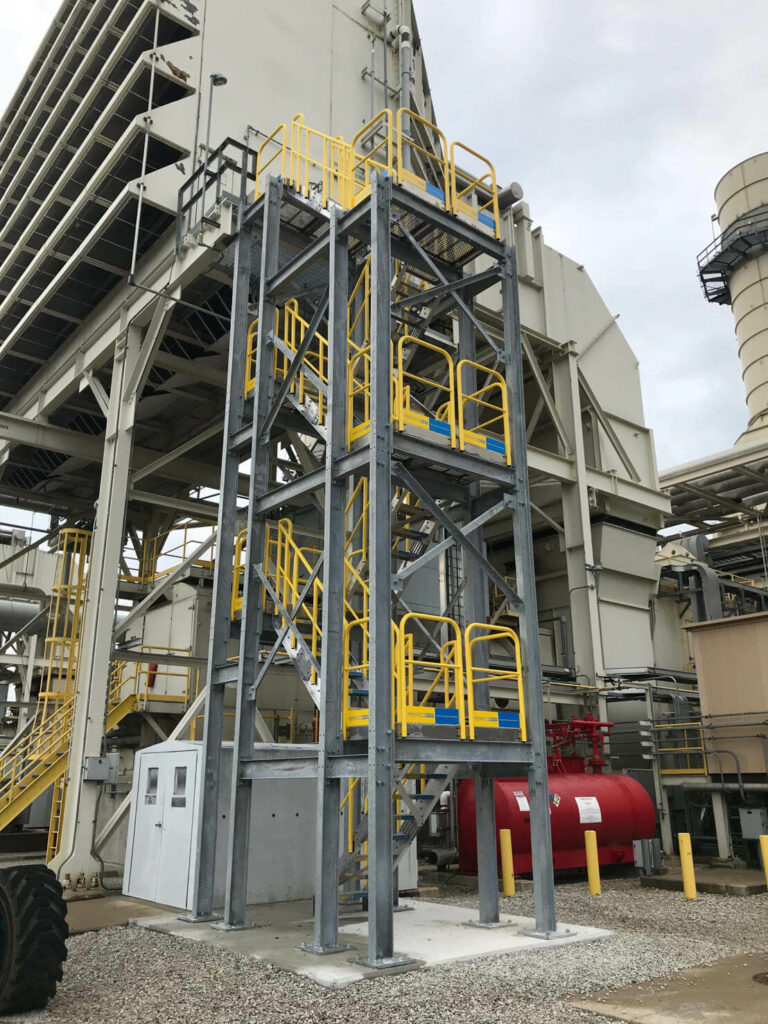
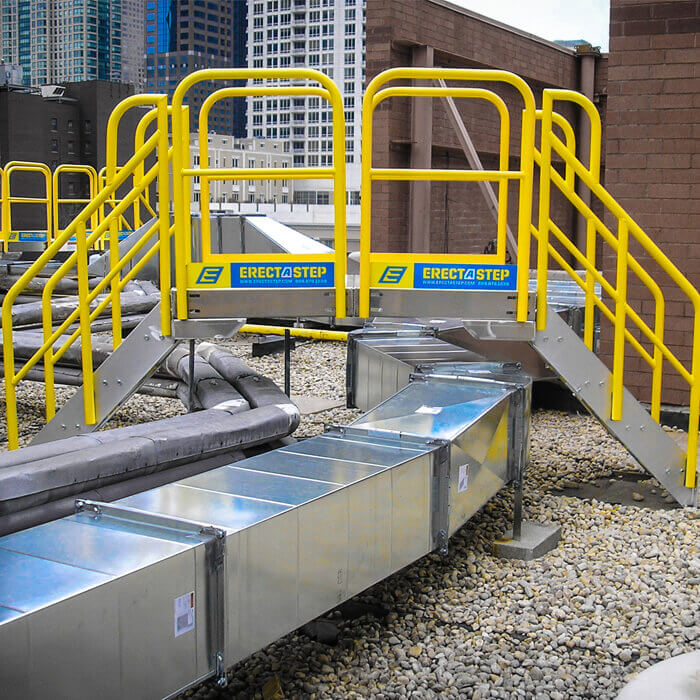
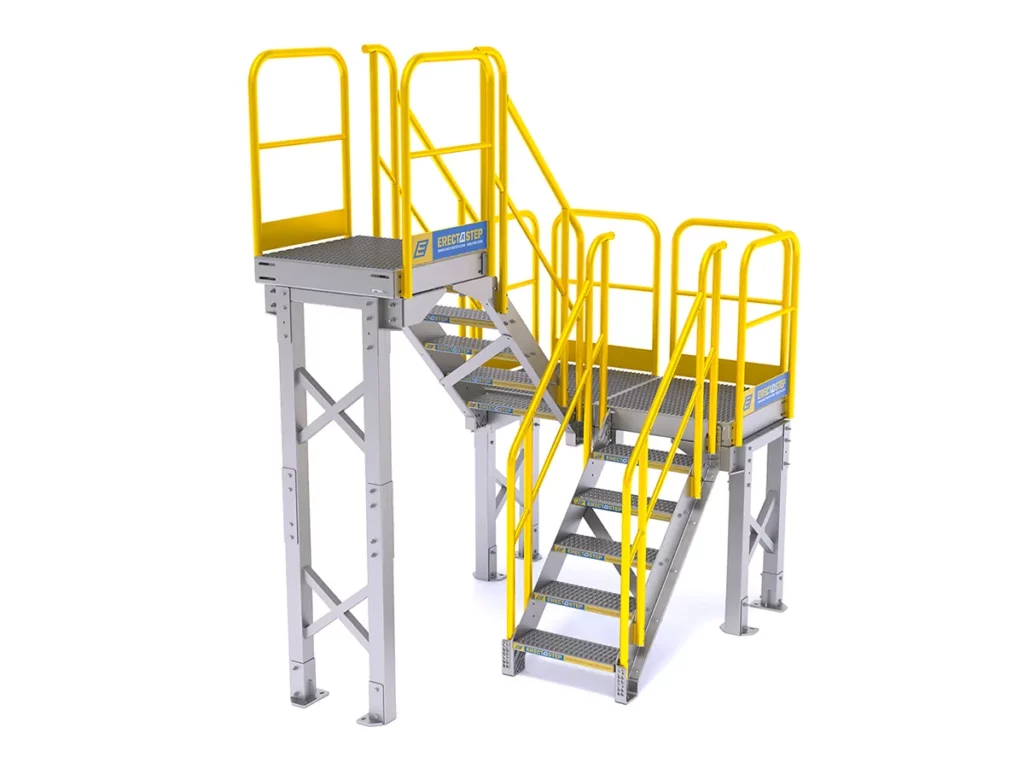
Rolling Stairs & Platforms
Metal stairs are built to last. They are prefabricated, and rolling stairs and platforms provide flexible and mobile ramps. What makes these stairs convenient is that they are portable and can be moved around and rearranged as and when needed in certain areas. They are commonly employed for maintenance work, activities that require short-term usage, or locations where the construction of a permanent staircase isn’t possible.
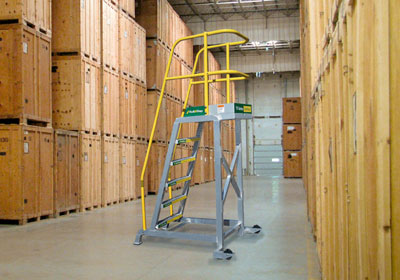
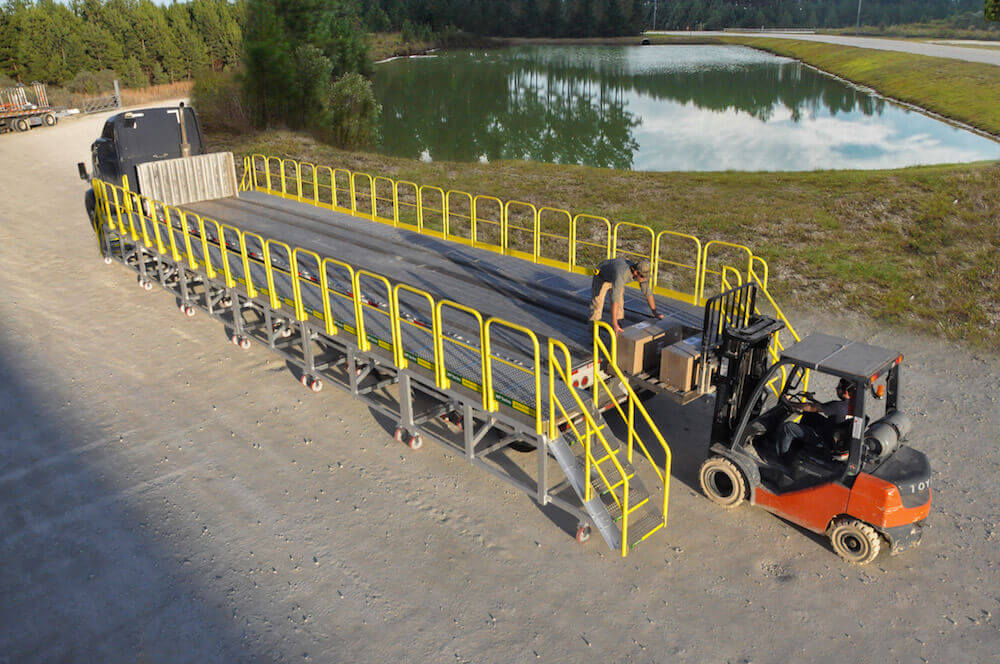
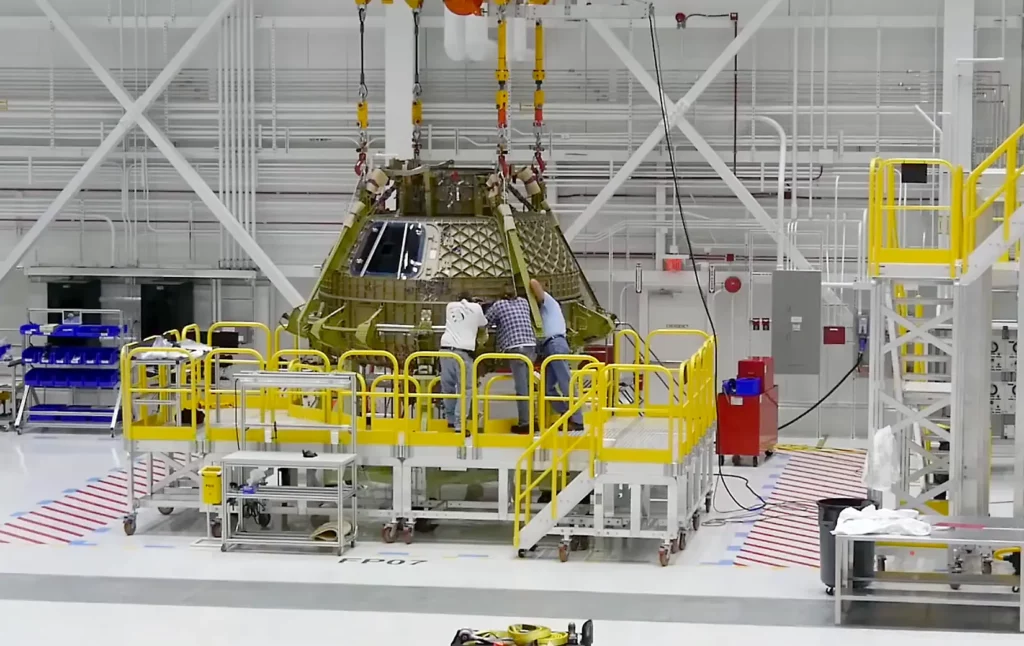
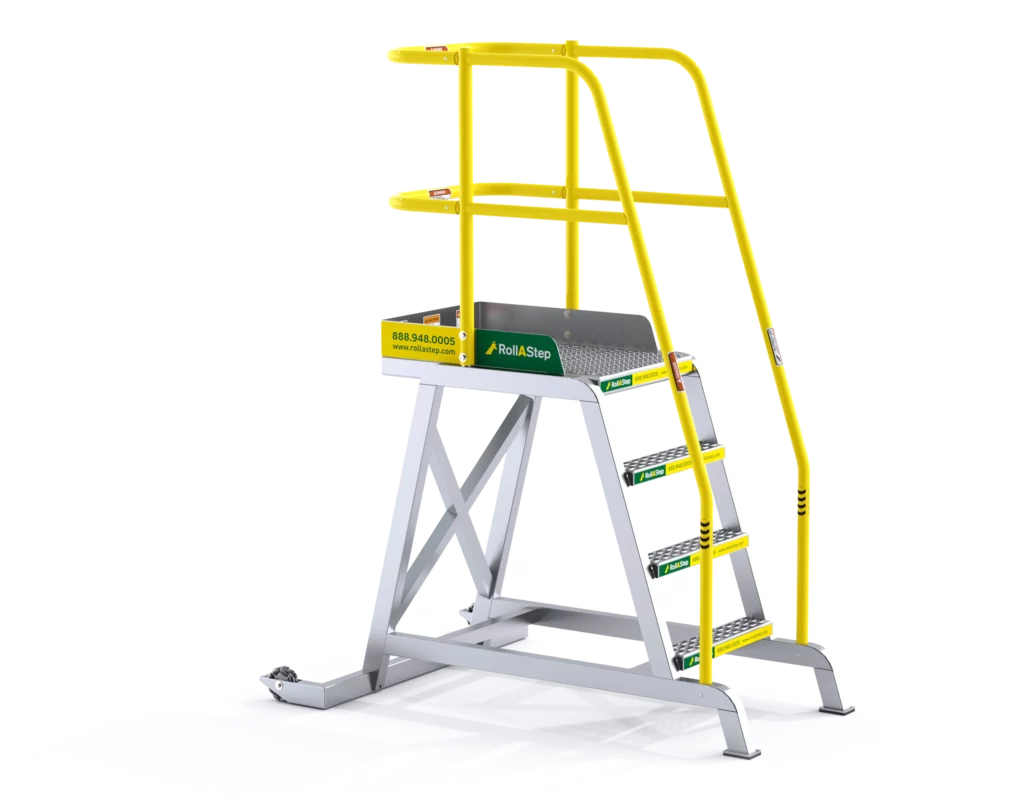
Ship Ladders
For industrial maintenance access, commercial storage, or access to rooftops and roof hatches, ship ladders are stairs with a steep angle, creating a short run and using less space, making them suitable for areas with limited space. These ladders provide a safe and efficient way to navigate vertical spaces where traditional stairs cannot fit. Common applications include access to mechanical rooms, mezzanines, and other tight areas.
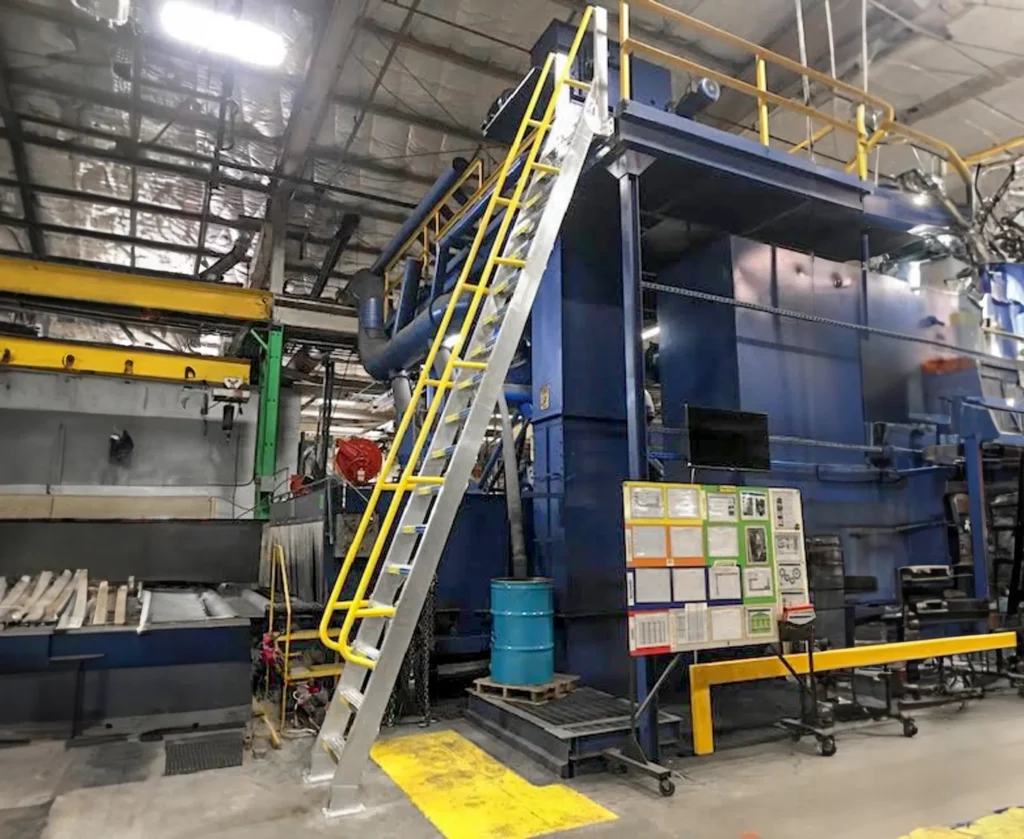

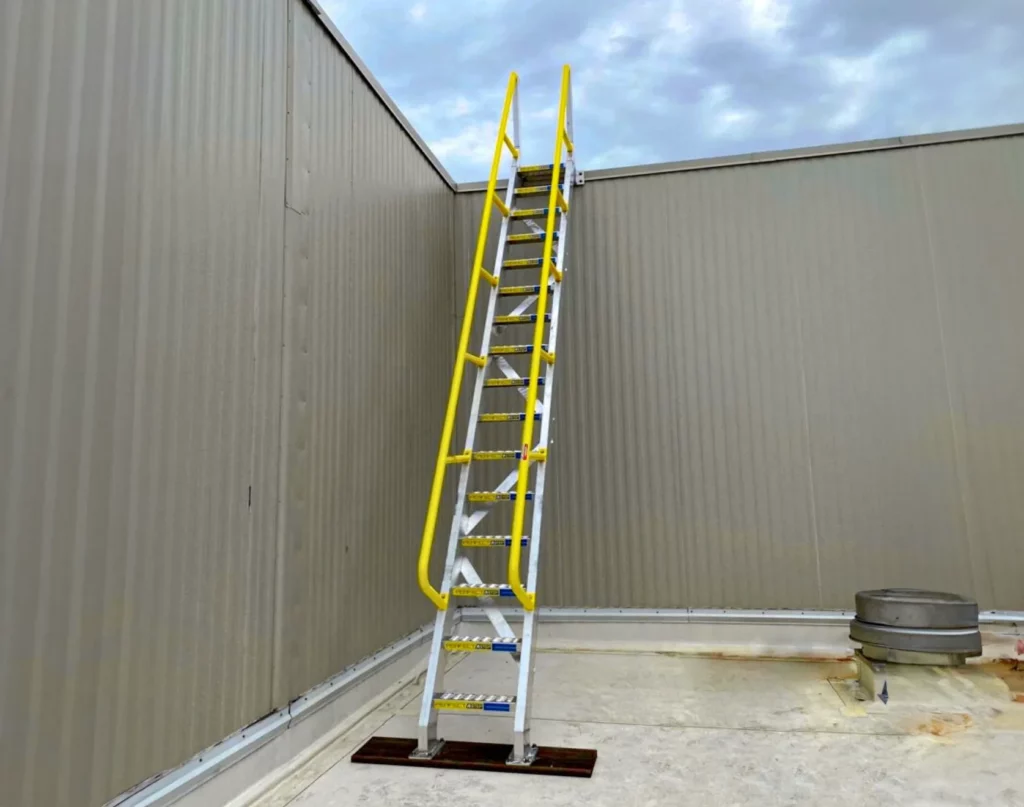
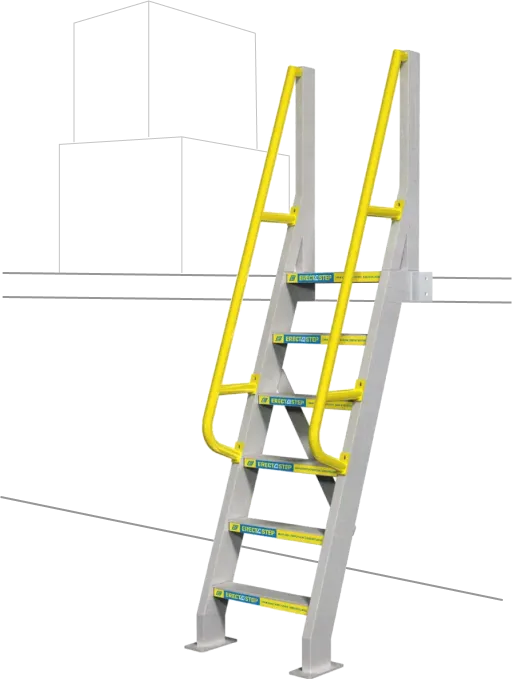
Commercial Stairs
Commercial stairs, designed for commercial buildings, prioritize safety and must at least be IBC compliant. They are typically designed to be more attractive but still strong and can perform the required functions of staircases. They are commonly found in offices, shops, and public structures.
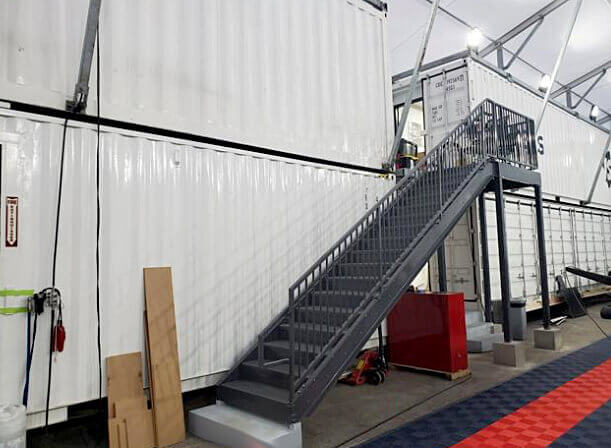
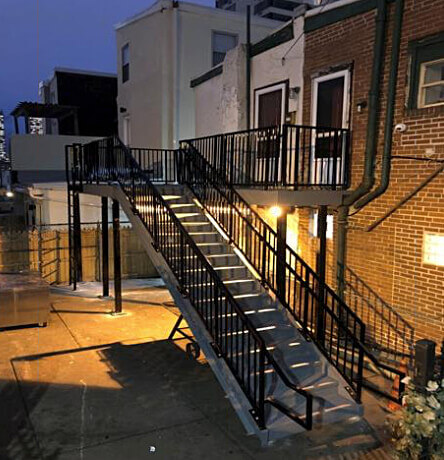
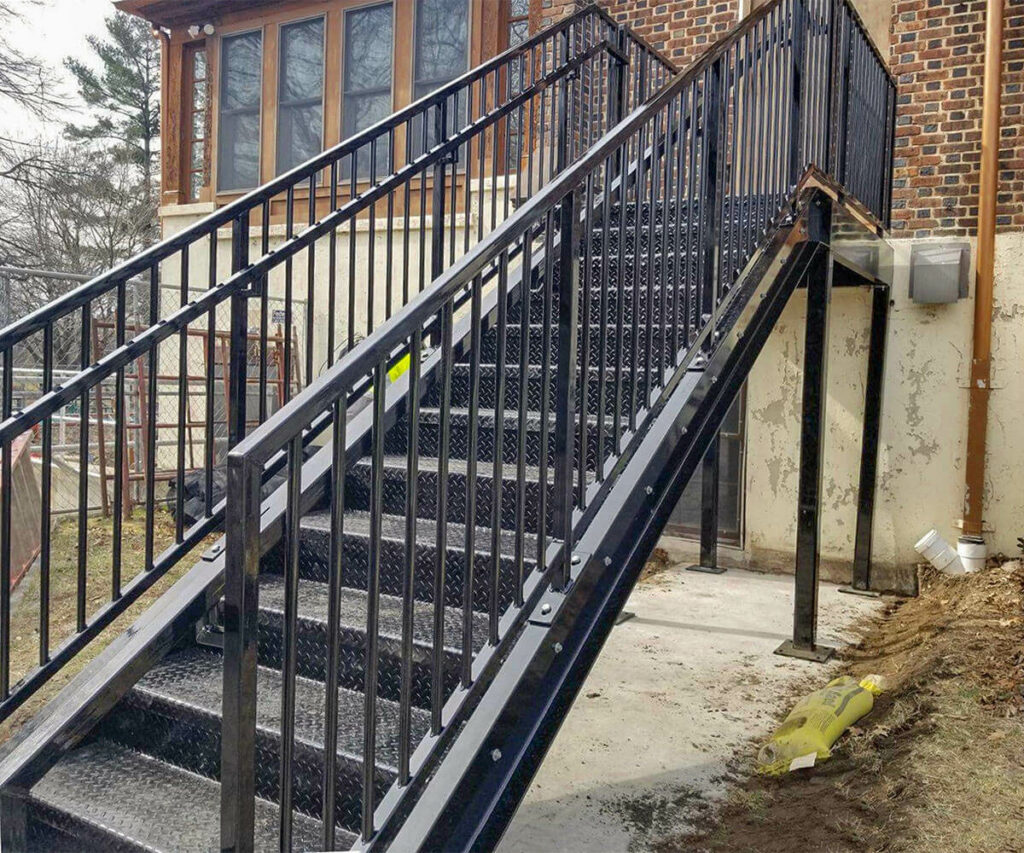
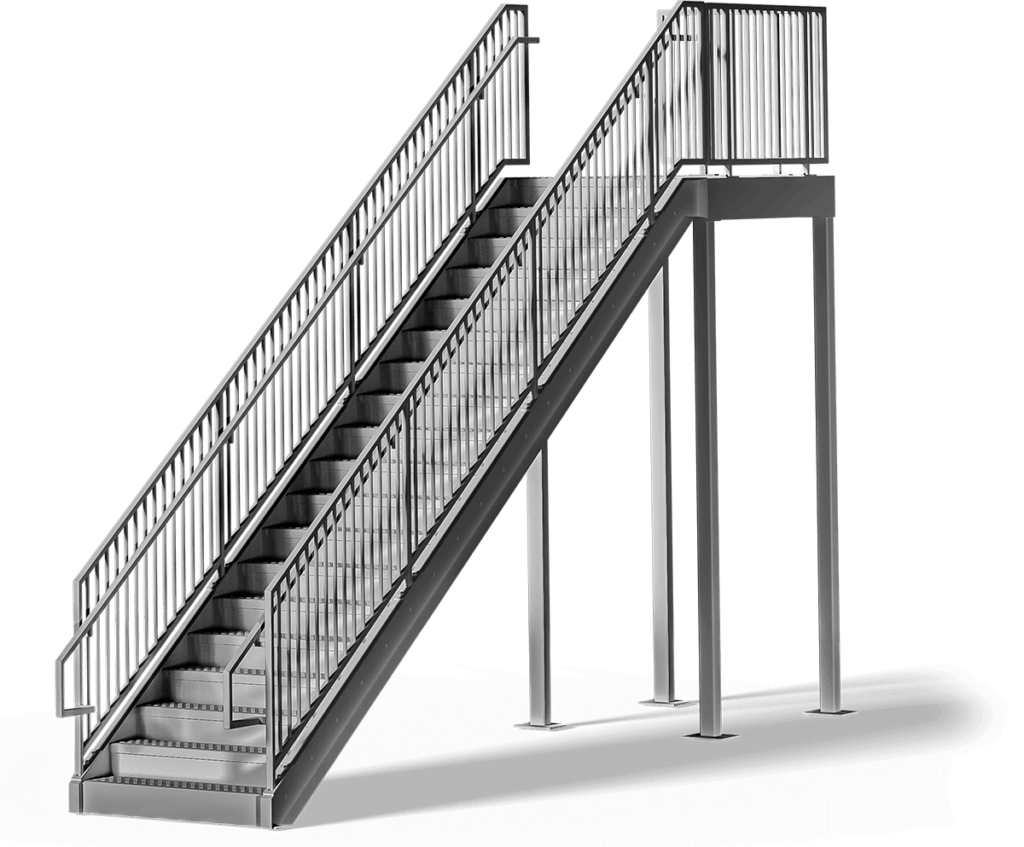
Specialized Stair Configurations
Industrial environments often require specialized stair configurations to meet unique access and safety needs. Here are some specialized stair configurations and their use cases:
HVAC Access Stairs
HVAC units are often situated on a rooftop or ground level HVAC access stairs refer to rooftop stairs that are constructed to afford users a safe and easy means to reach HVAC units to check them over or make repairs. These stairs remove the requirement of workers having to carry along ladders, which makes work safer and more efficient. HVAC access stairs are handy to facilitate maintenance processes without the probability of an accident, such as falling in the working area.

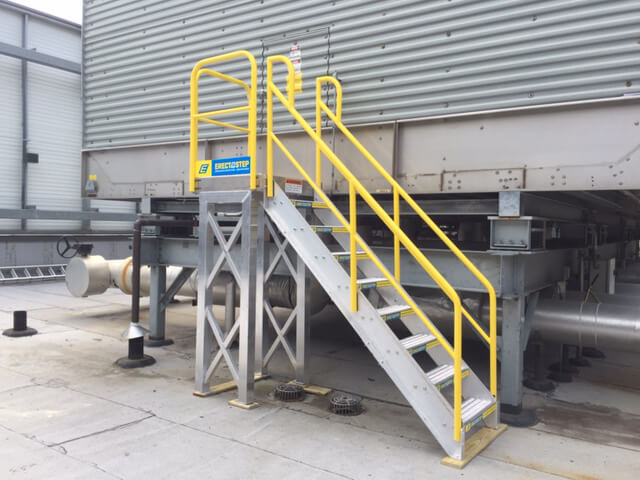

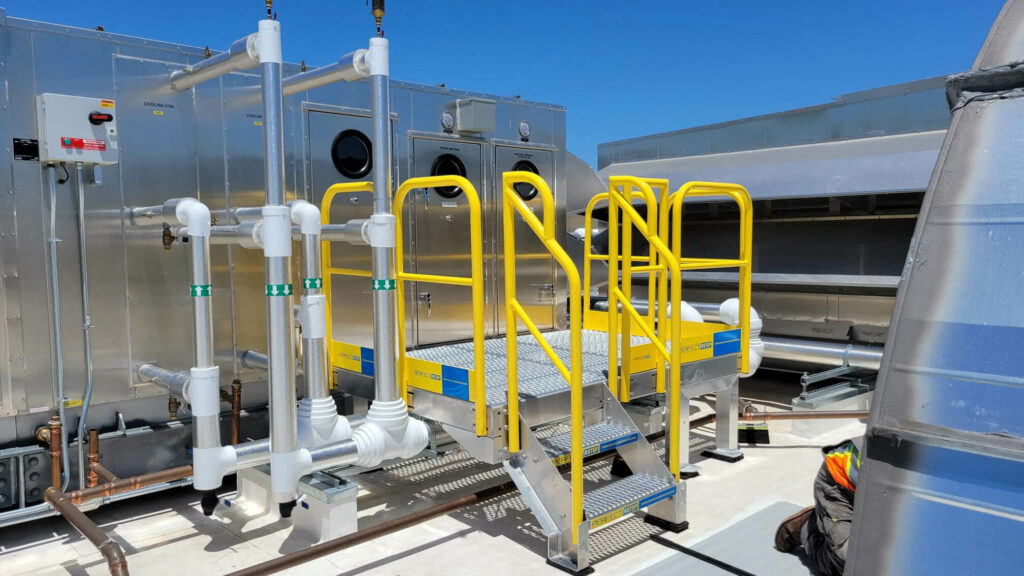

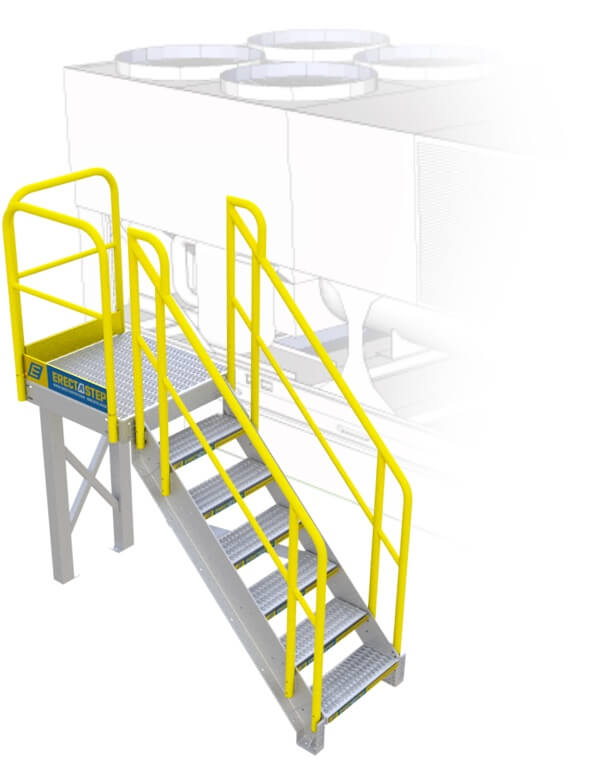
Crossover Stairs
Crossover stairs are meant to provide the worker with a way to cross over obstacles like conveyors, pipelines or any other equipment. These stairs come in handy in areas where a constant flow of movement is necessary since they allow movement from one level to another without stopping. Crossover stairs enable safe and efficient mobility over barriers.
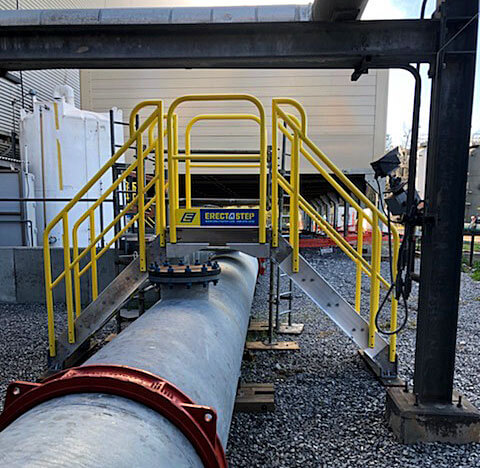
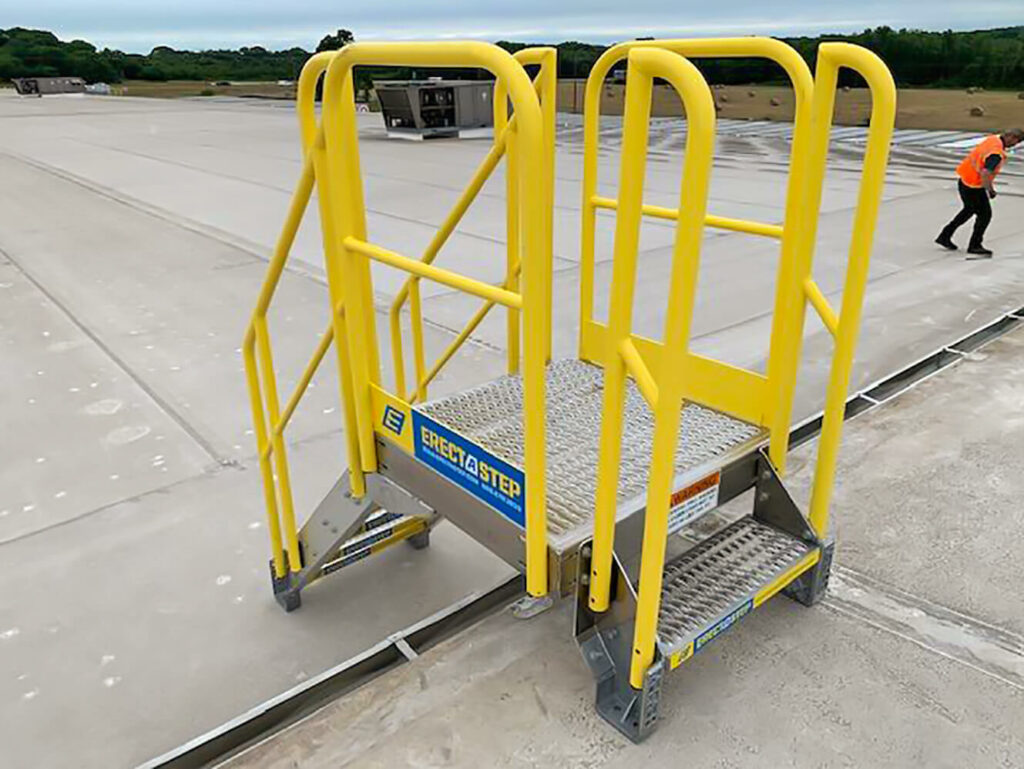
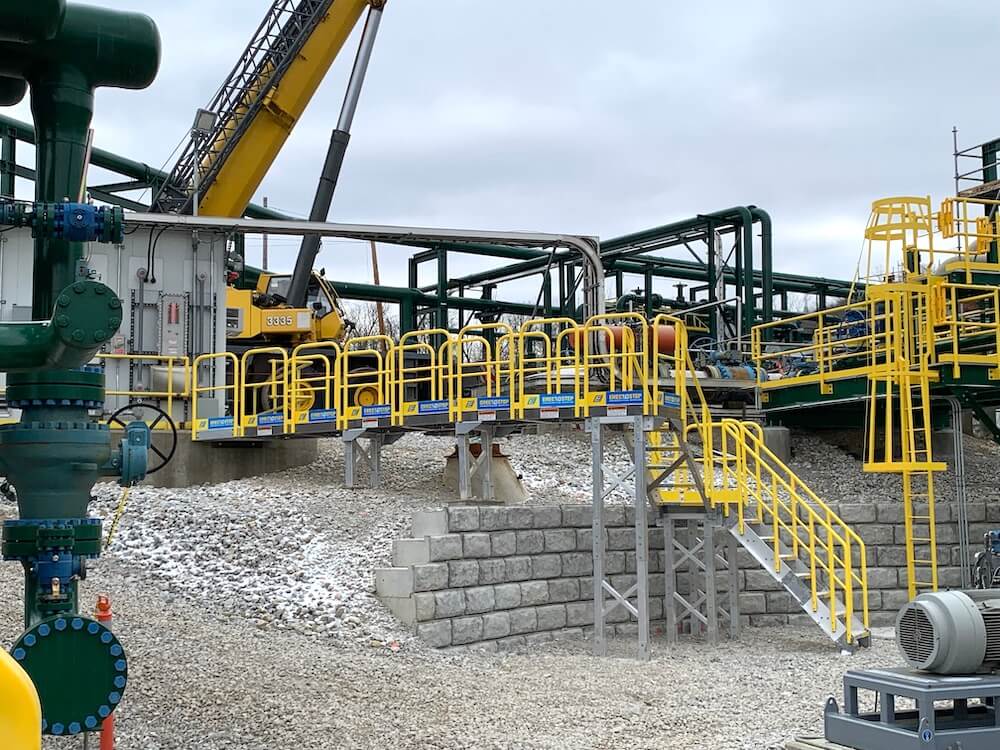
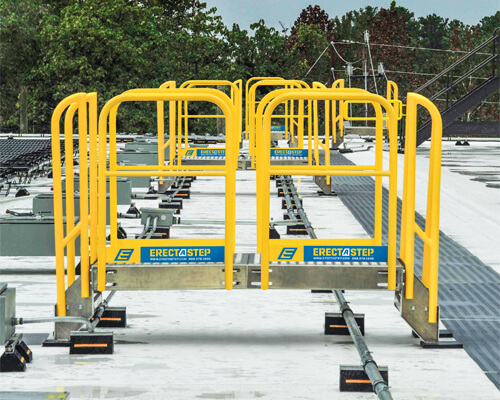
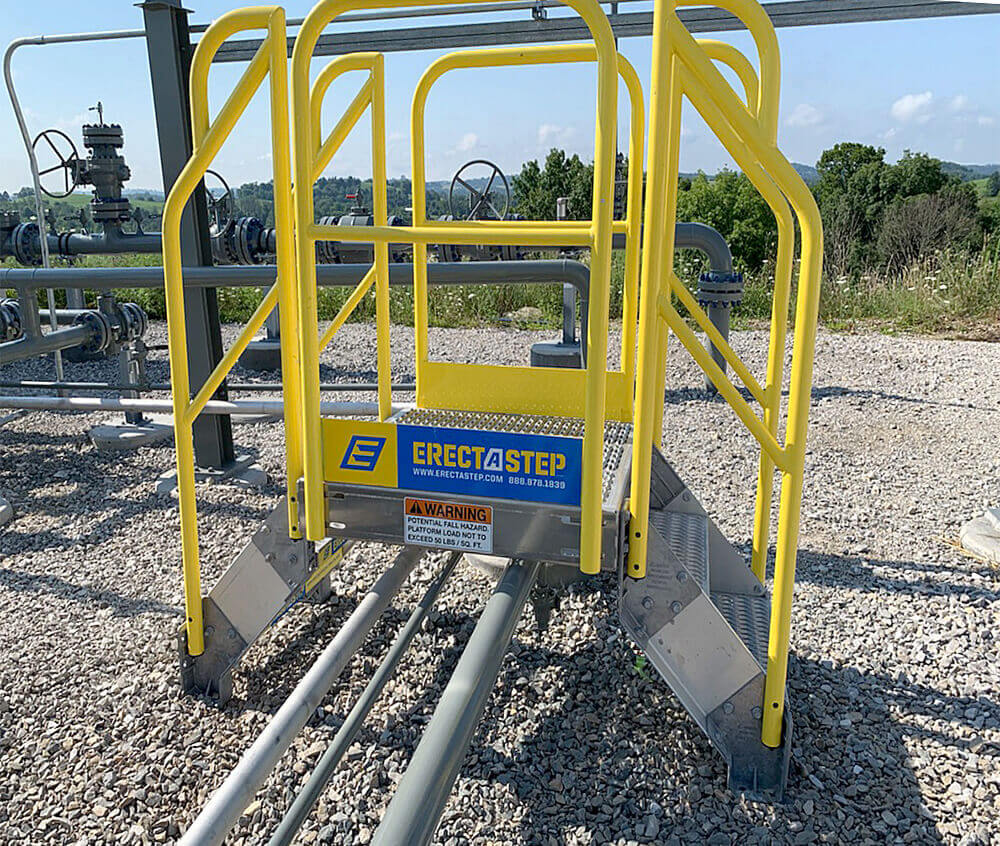
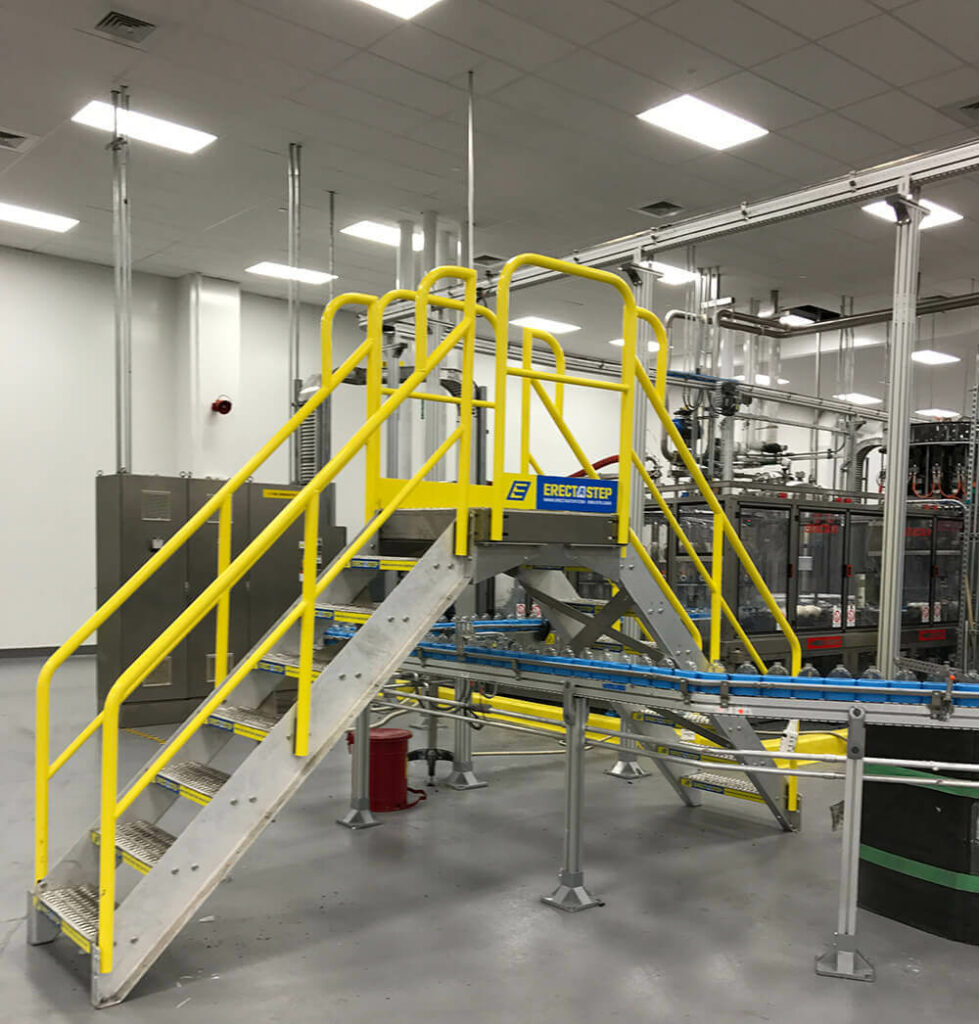
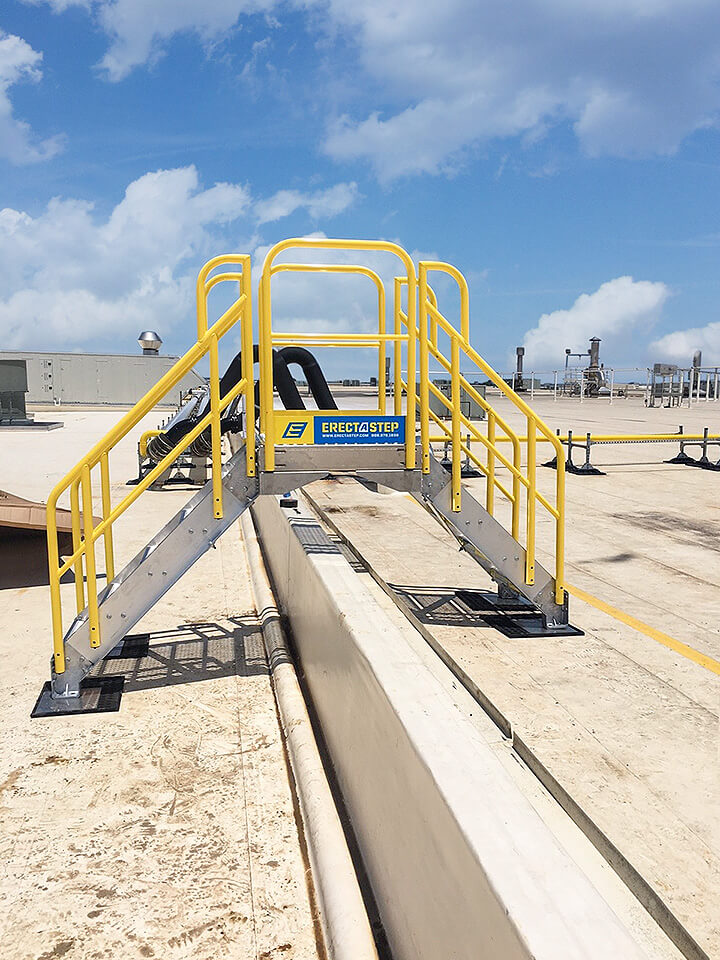
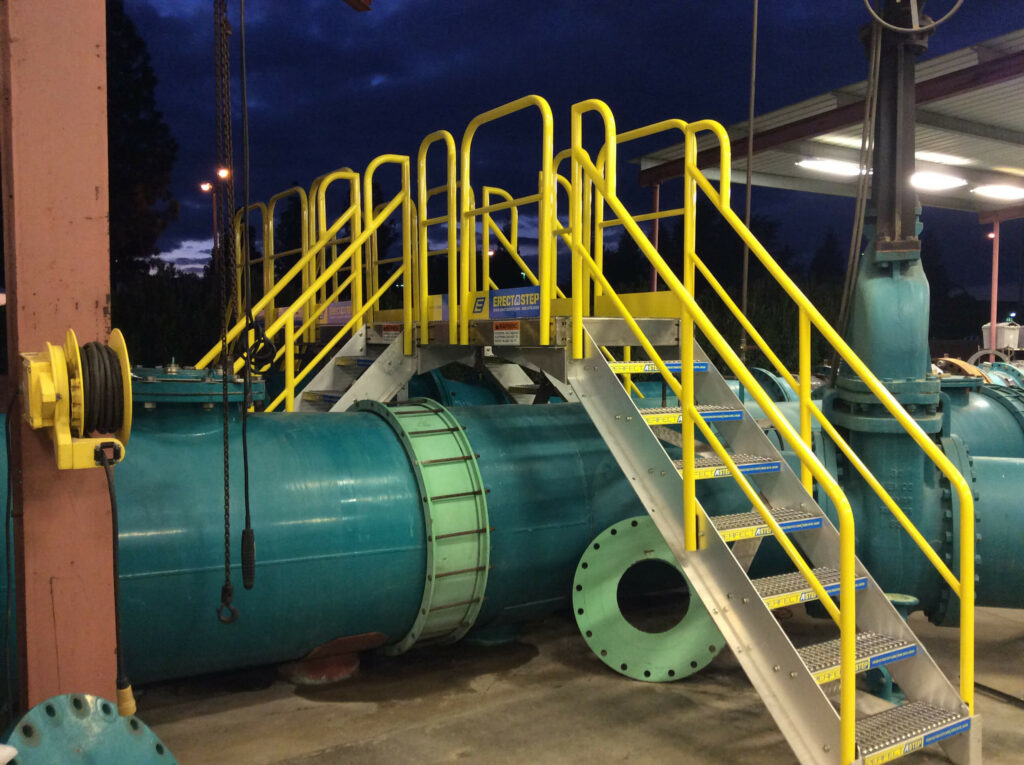
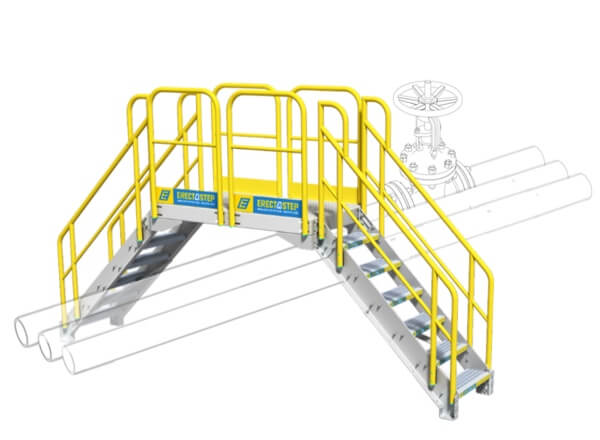
Access Platforms
Access platforms or elevated work platforms raise your workers to where a task or an entryway is. When you use the OSHA-compliant components of the ErectaStep system, your company can design and install a work platform that is successful and a necessity in areas where work is conducted at various heights, including equipment levels. These platforms, designed to meet OSHA standards, provide a safe working environment for workers. They are commonly found in production facilities, storage areas, and other related industries, ensuring safety and efficiency in the workplace.
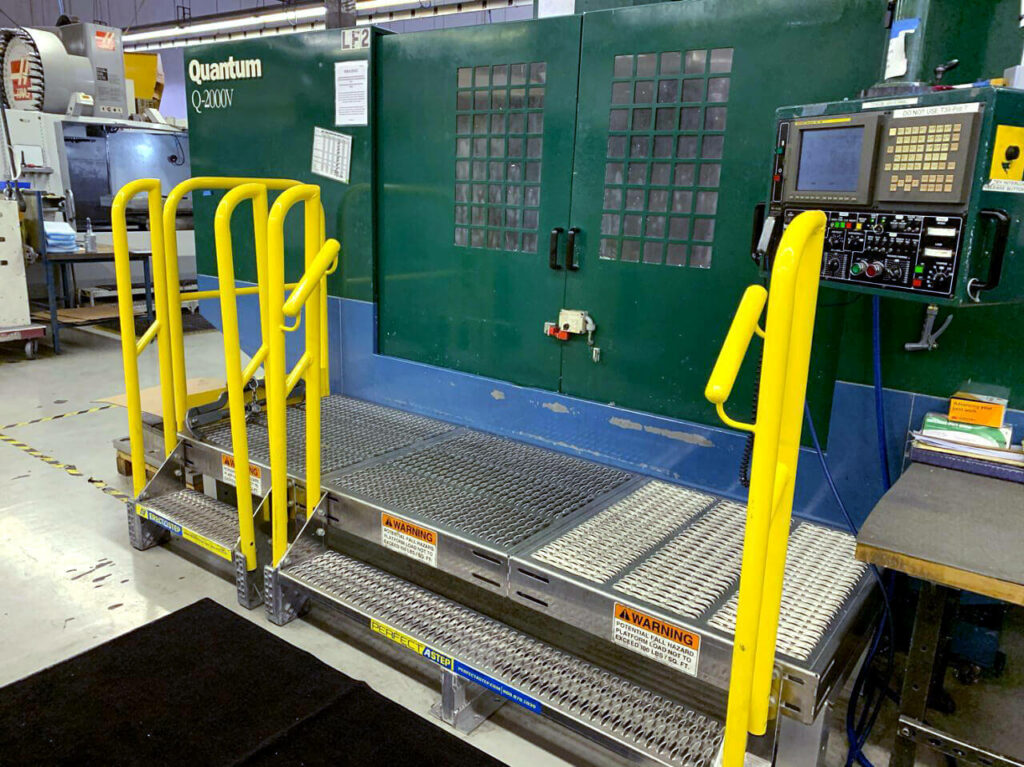
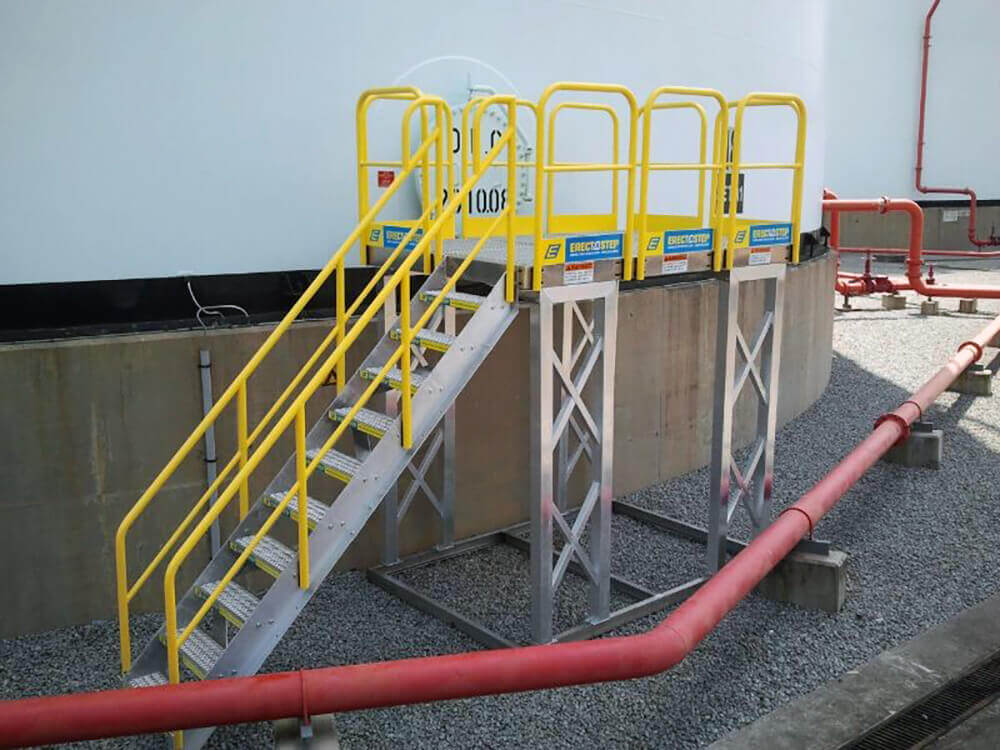
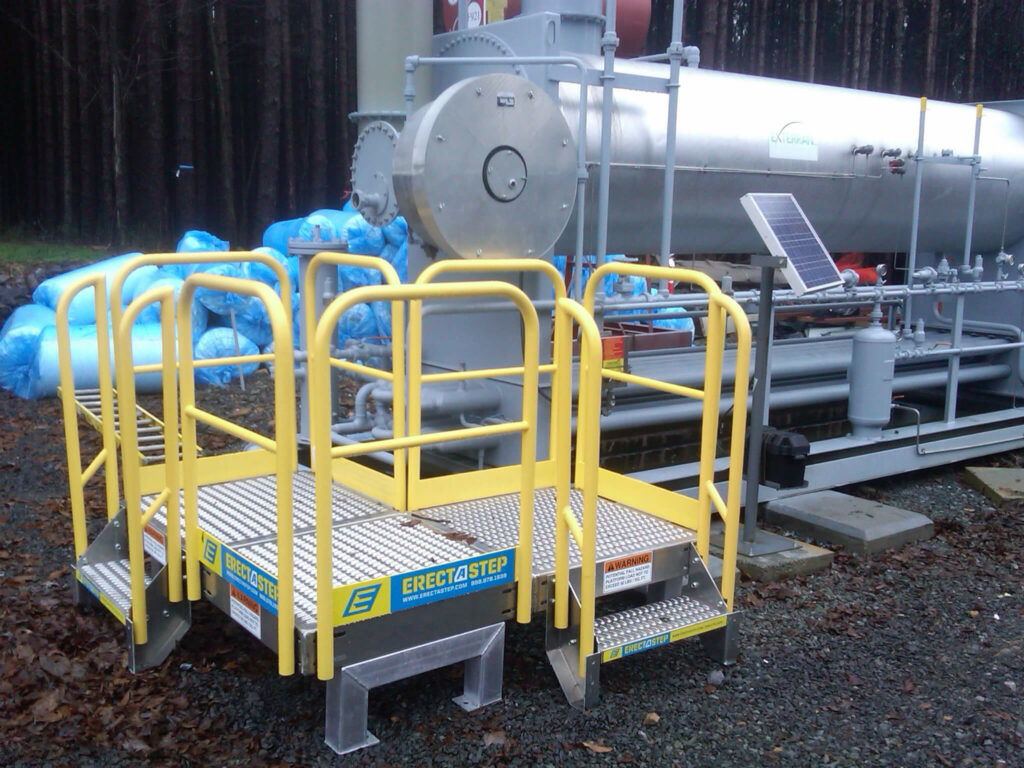
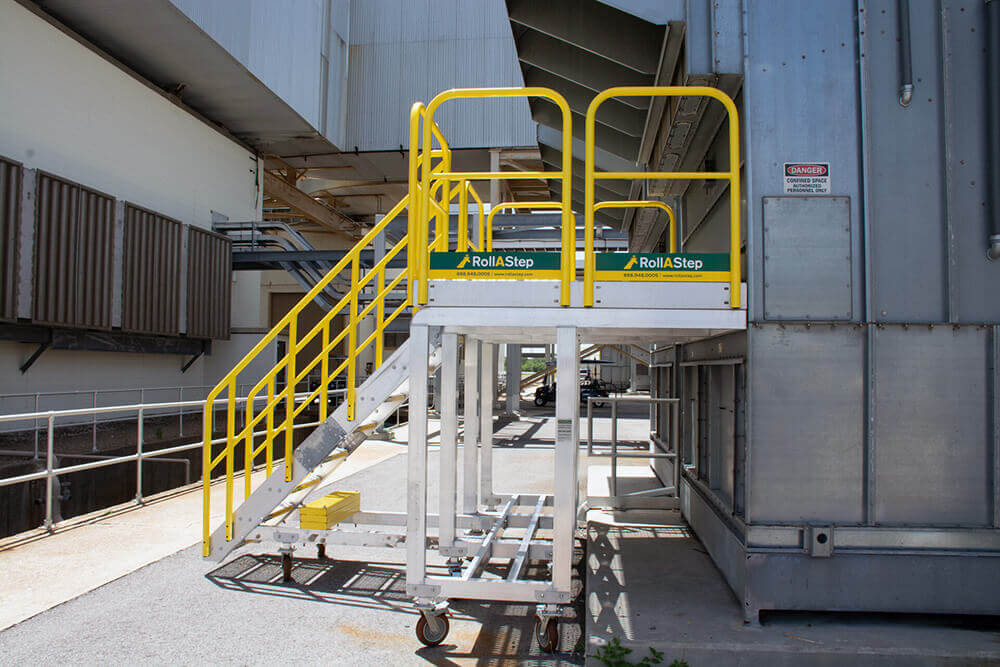
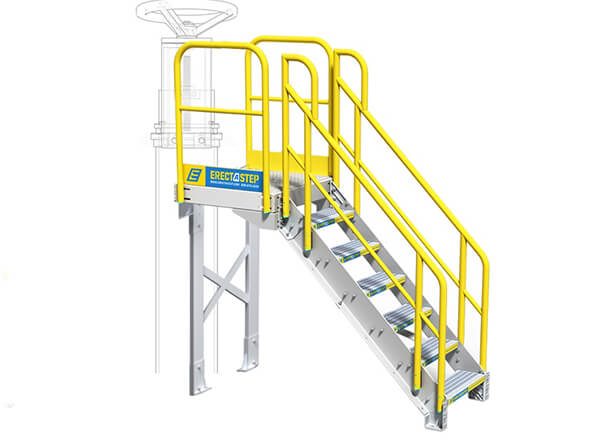
Mezzanine Access Stairs
Mezzanine access stairs connect mezzanine levels to lower floors, providing safe and efficient access between different levels of a facility. These stairs are essential in warehouses and distribution centers where mezzanine storage is used to maximize space. Mezzanine access stairs ensure movement without risking injury, improving overall operational efficiency.
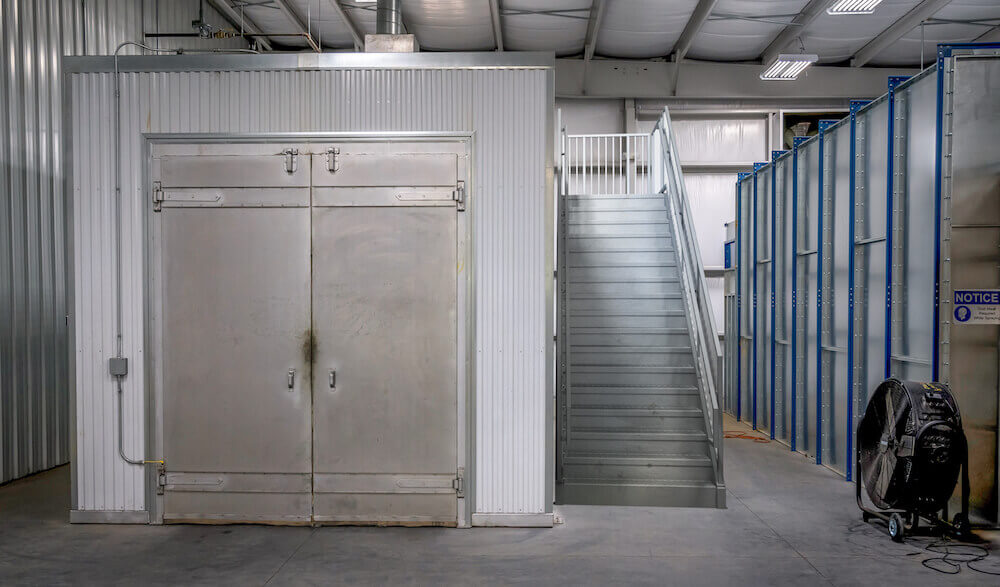
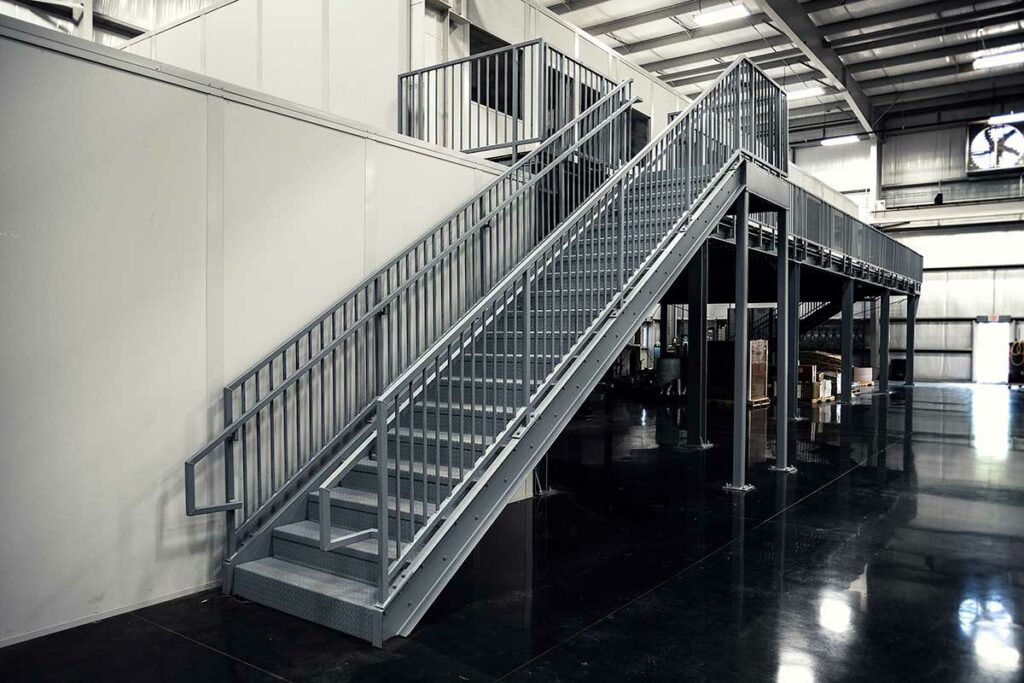
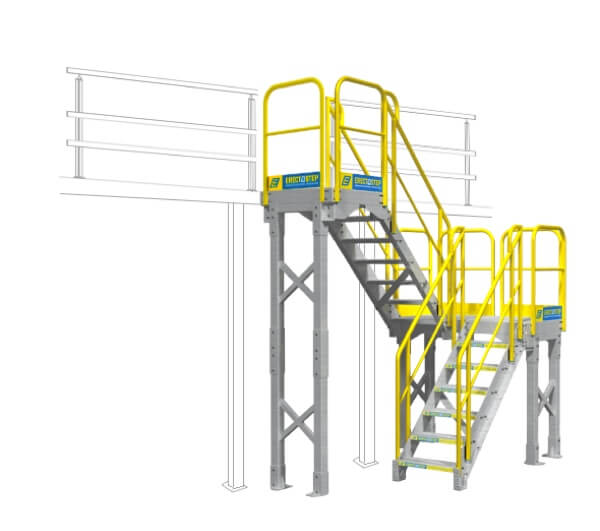
Roof Access Stair
Roof access stairs are special staircases widely used to provide safe access to rooftops. They are designed for maintenance work and checking and can also be used in case of emergencies to access the entire roof. Roof access stairs are designed and constructed to be operable in different weather conditions, and predetermined safety standards guide the working conditions on the roof.
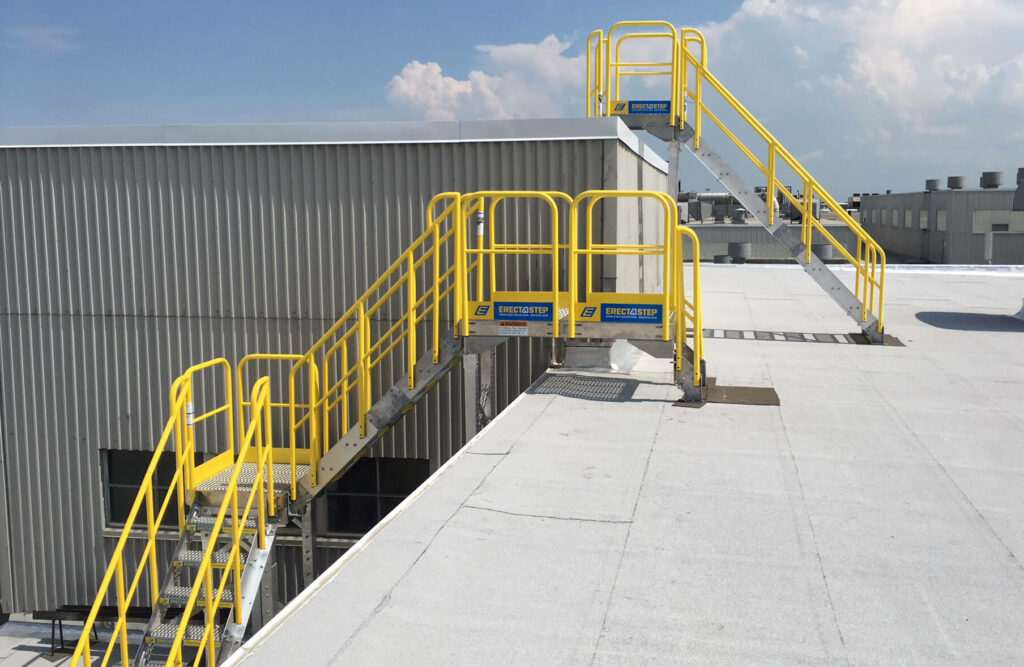
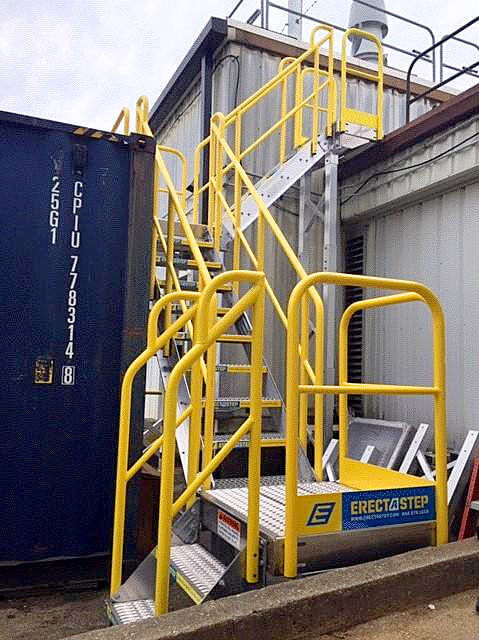
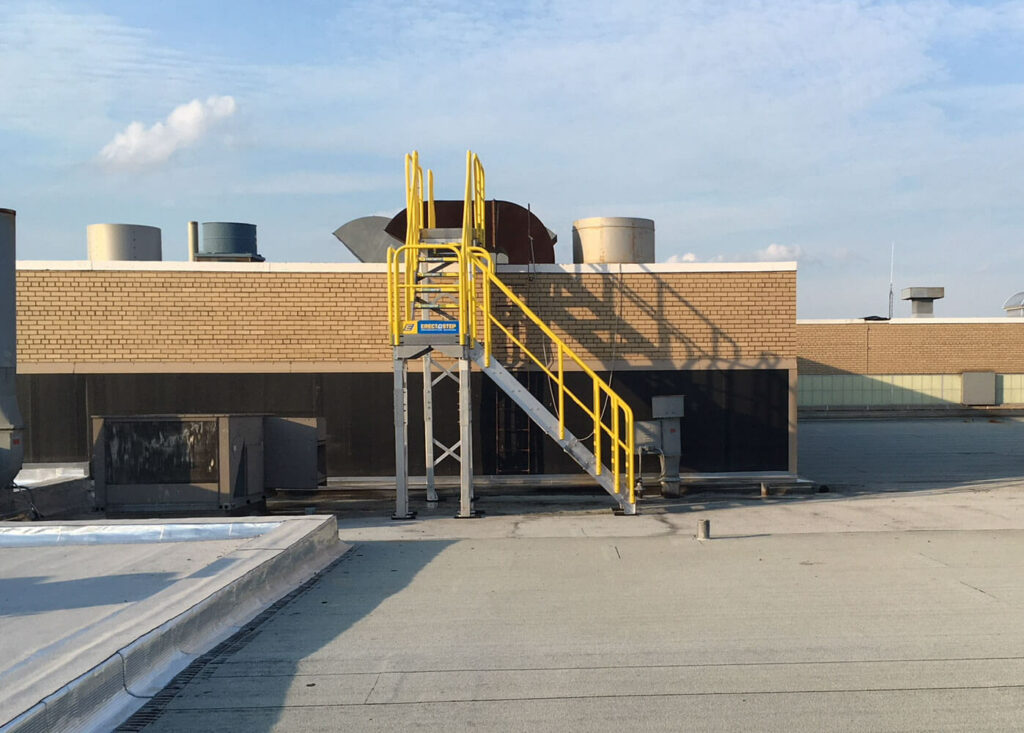
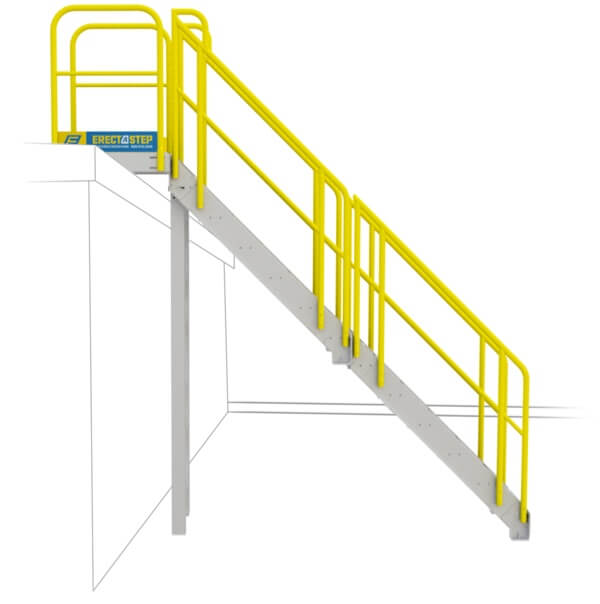
Portable Access Trailer Stairs
Portable access trailer stairs, designed for convenience, are mobile stairs intended for trailers or any temporary structure. These stairs, solid and secure, allow people to safely and easily access trailers, making them useful in construction, events, and any situation where trailers are frequently moved or used for temporary periods. Their easy installation and folding down make them a convenient and practical choice.
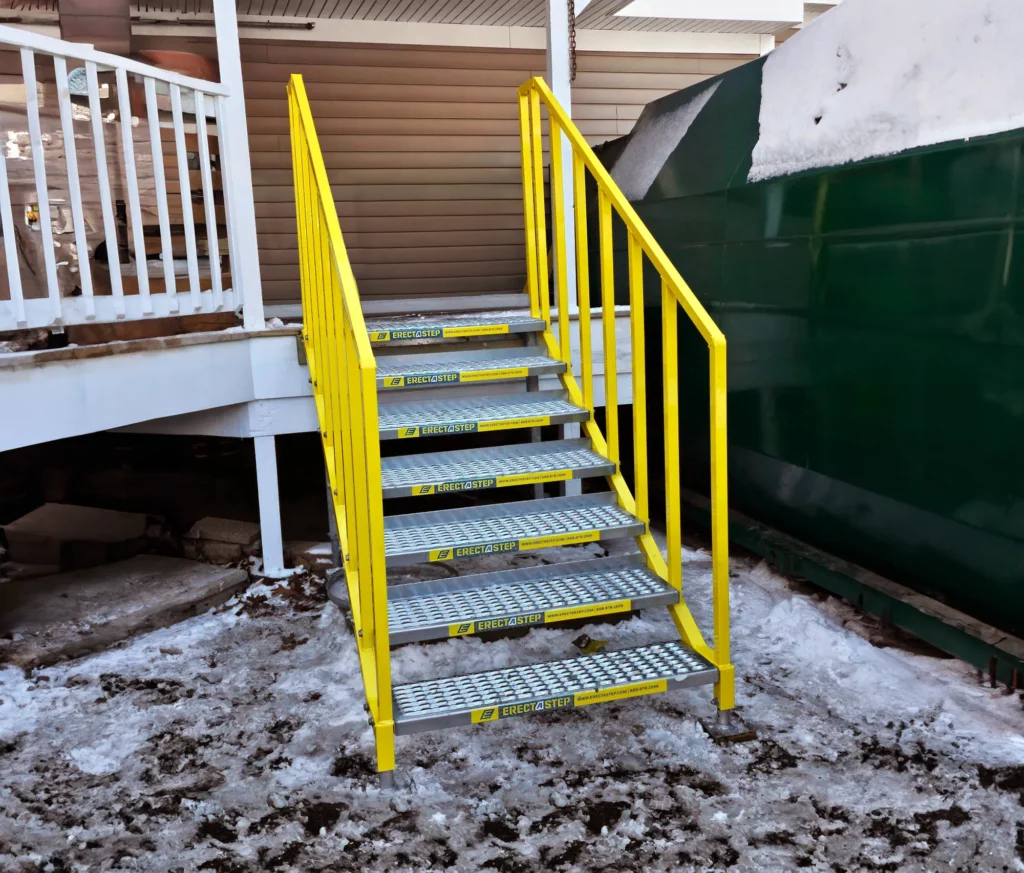
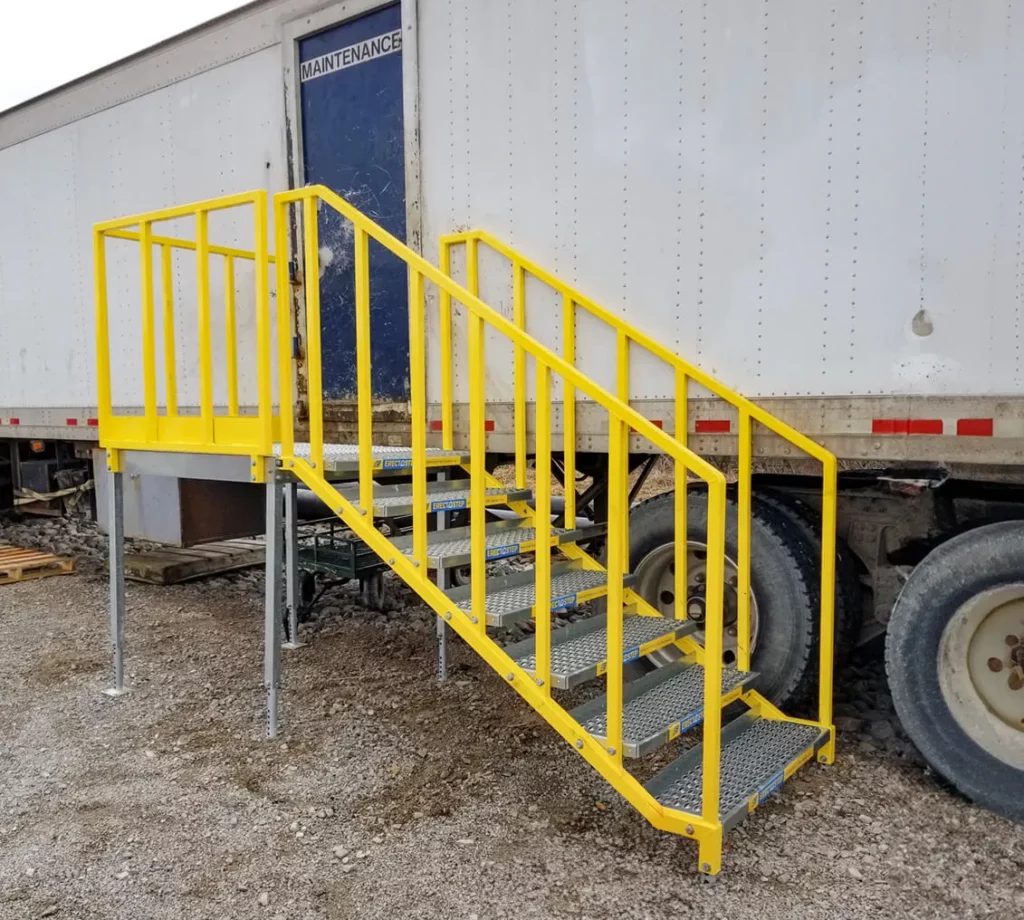
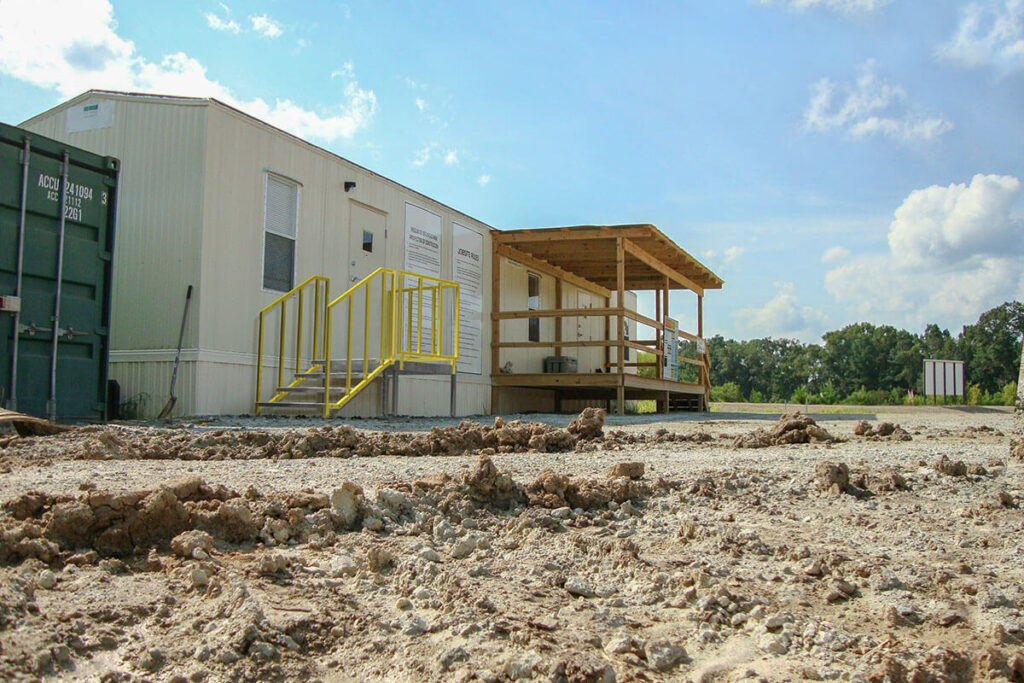
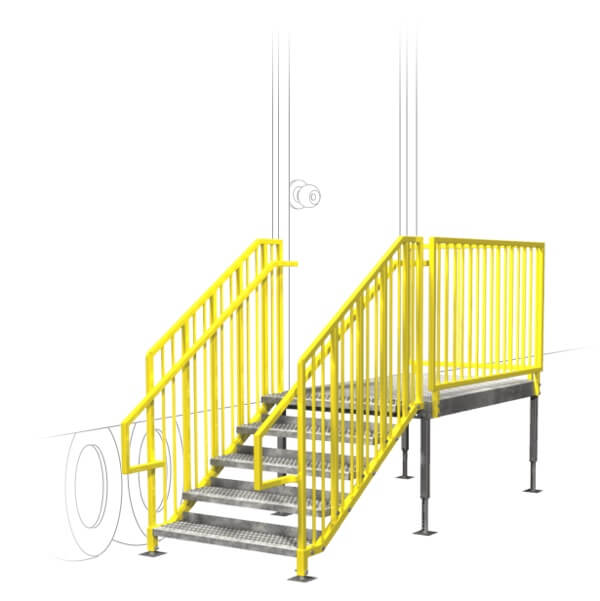
Entryway Stairs
Entryway stairs are durable and safe stairs designed for facility entrances. These stairs are built to withstand heavy use and meet safety standards, making them a reliable access solution for any facility.
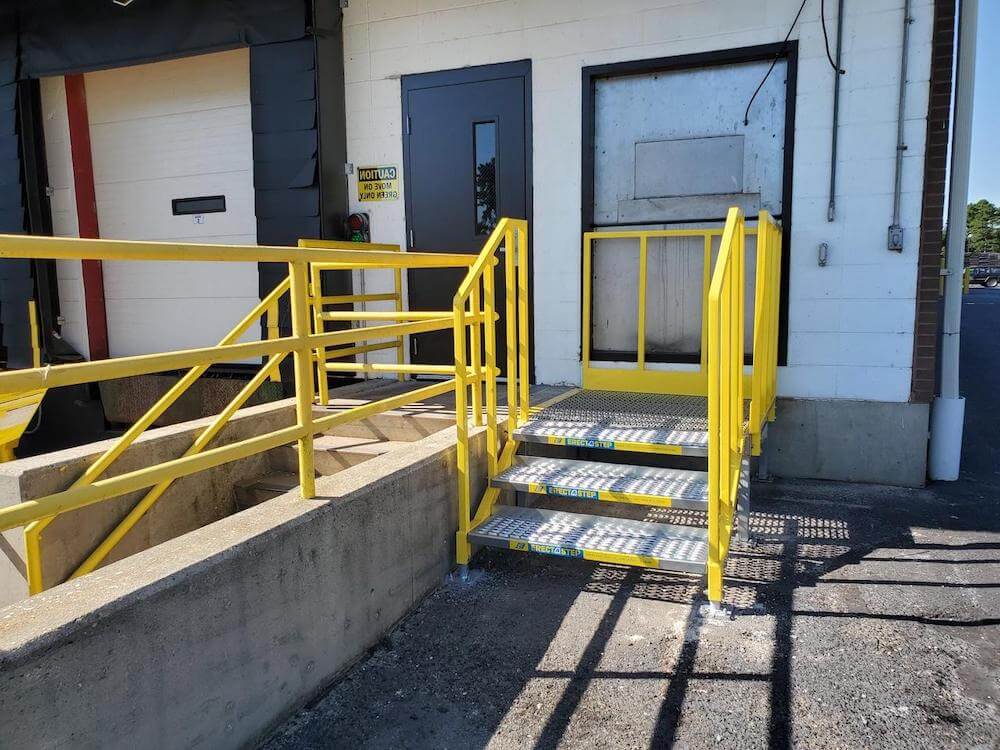
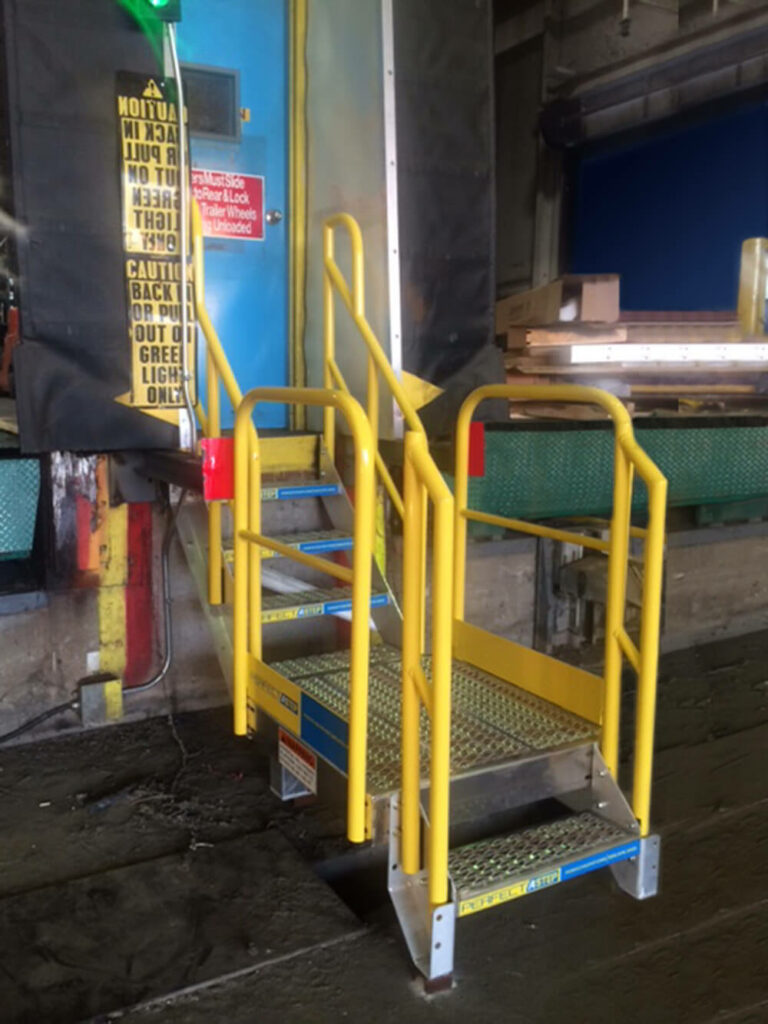
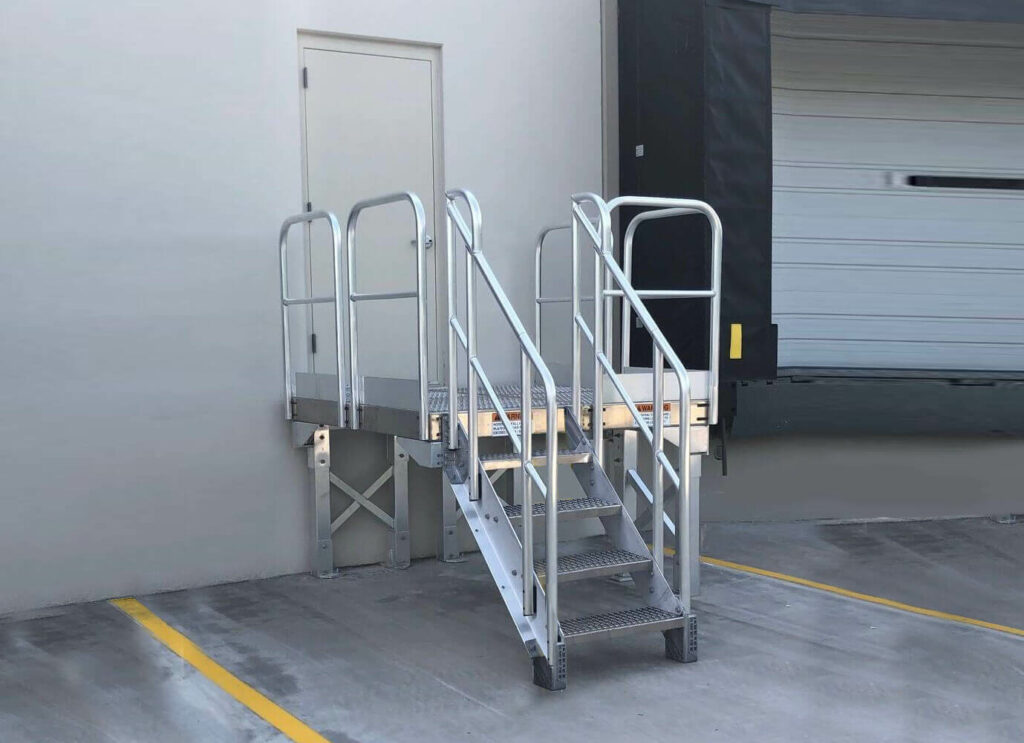
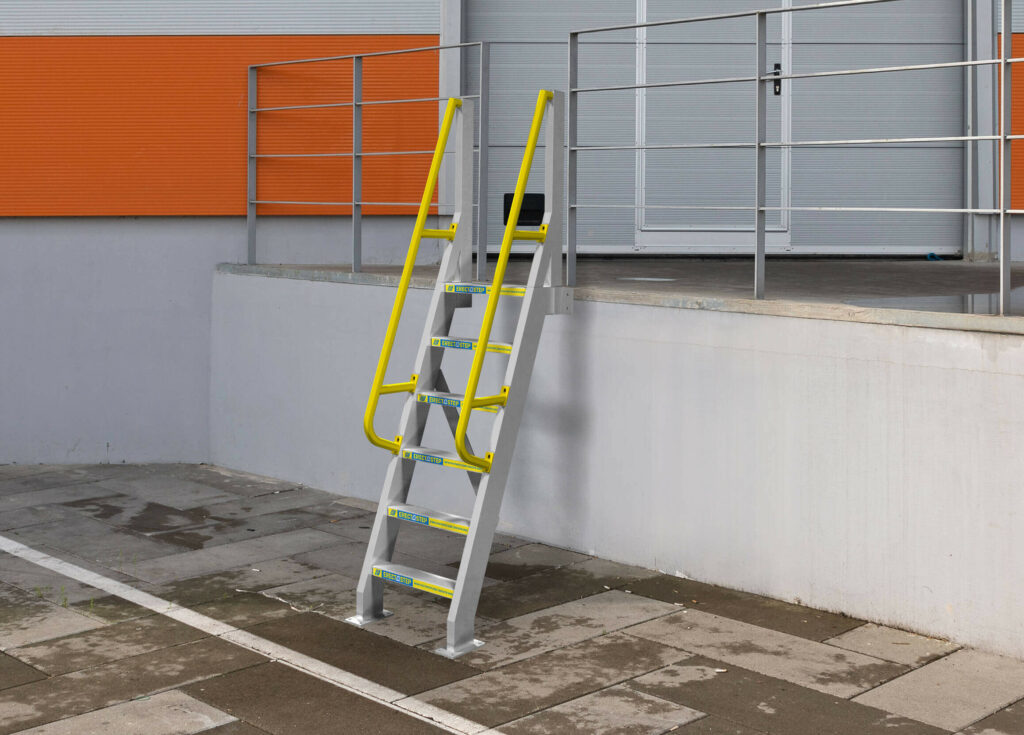
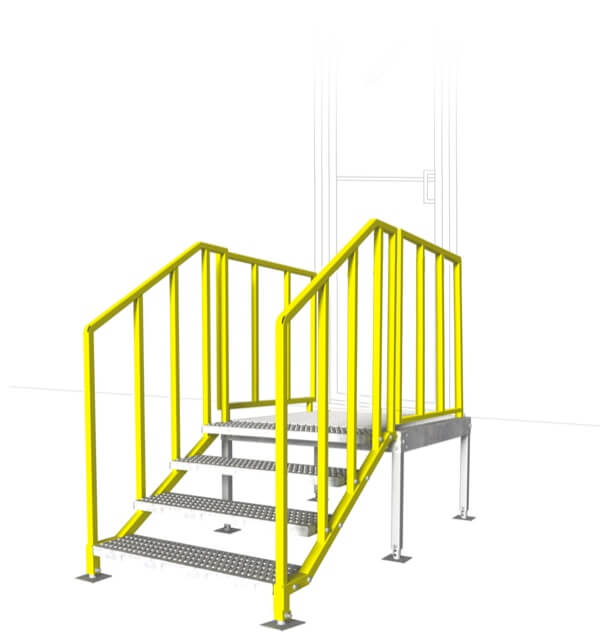
Stairs With Intermediate Landing
The stairs with intermediate landings include an intermediate platform that acts as a break for workers, which makes it easier and safer to climb up and down long stairs. These stairs make more sense in tall buildings or structures because if you have to climb them for some time, it might become tiresome.




Assembly Line Stair
ErectaStep stair and platform systems built alongside assembly areas or vehicle loading areas keep your workers at the right level to work comfortably and safely. A worker can reach any point of an assembly point or work area easily. If your company has needs for customized work platforms, ErectaStep can be molded around any work situation and to any level. Whether your company installs complex avionics or other components, an ErectaStep staired platform can handle the job.
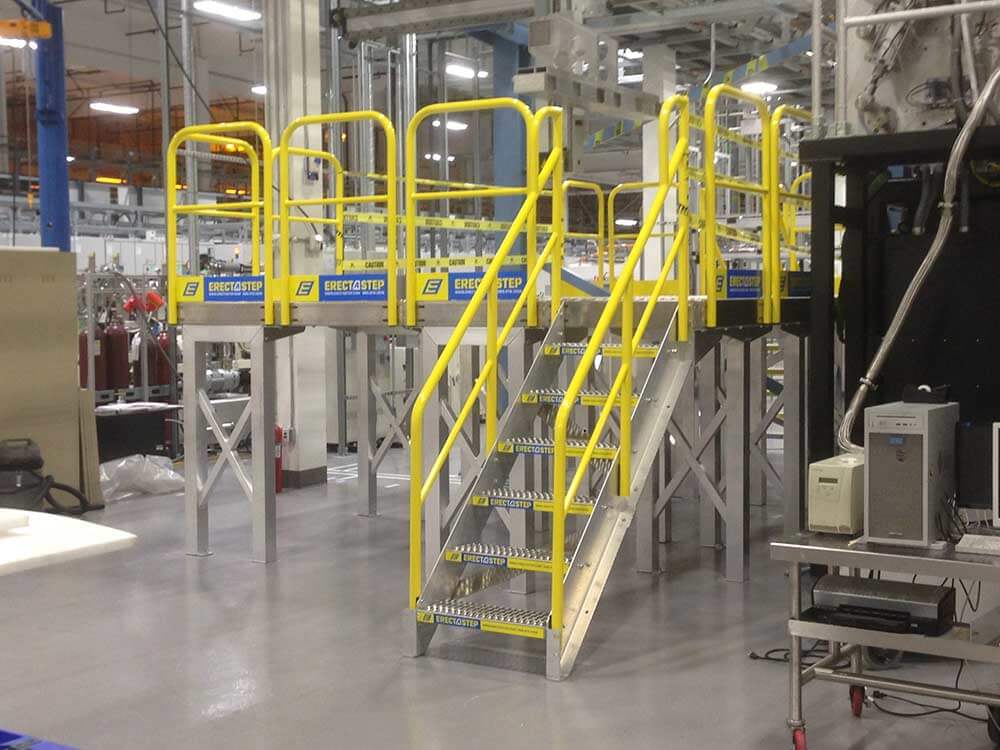
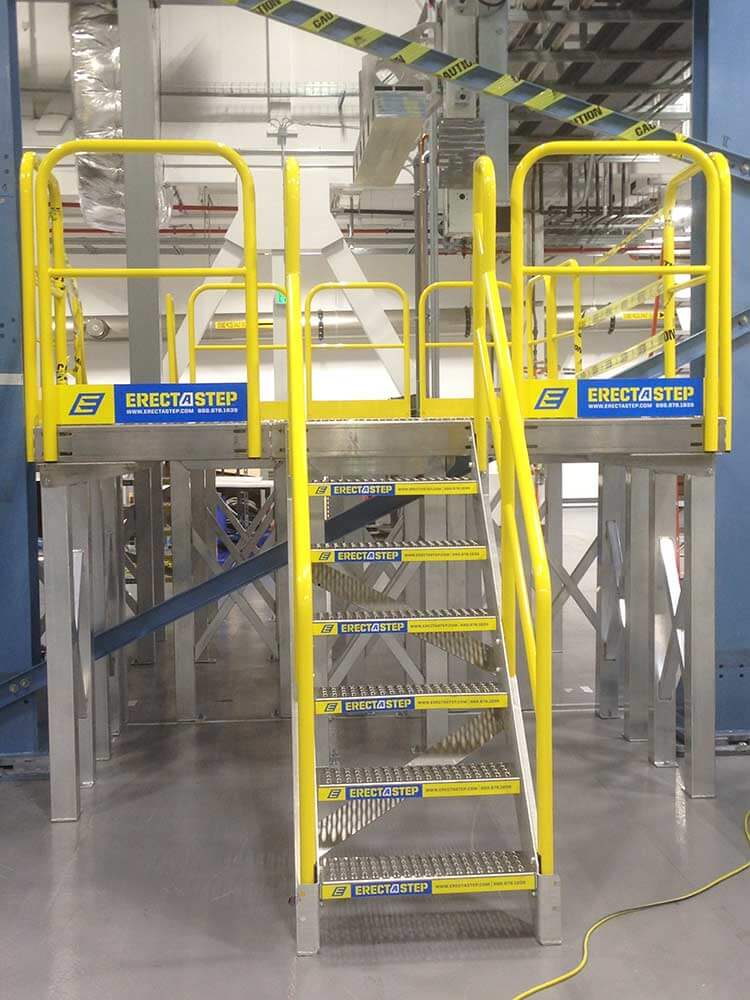
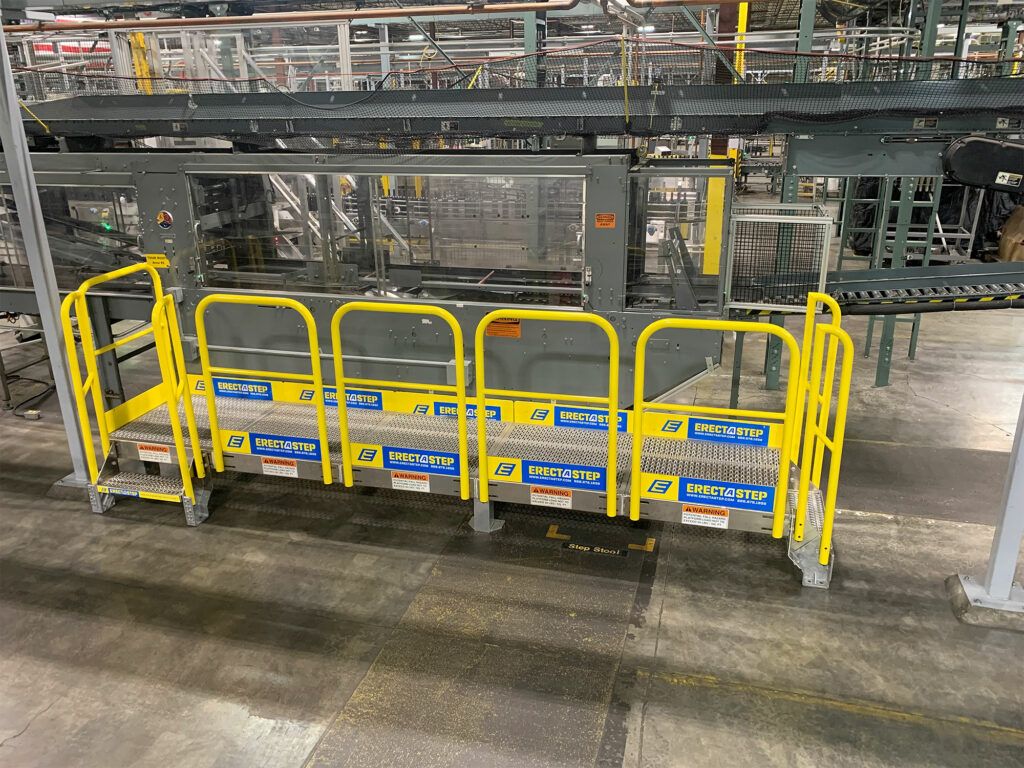
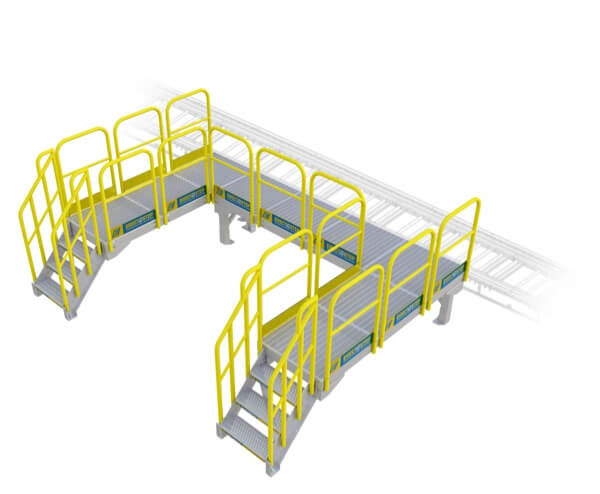
Catwalks
Catwalks are raised access routes that allow individuals to move about safely over extensive areas or in regions containing barriers. They are widely used in industrial plants, warehouses and manufacturing units to give employees free access to working above the machines, conveyor belts or any equipment. These barriers offer a fairly clear view, are easy to navigate, and contribute to the orderliness of footwear and the reduction of accidents.
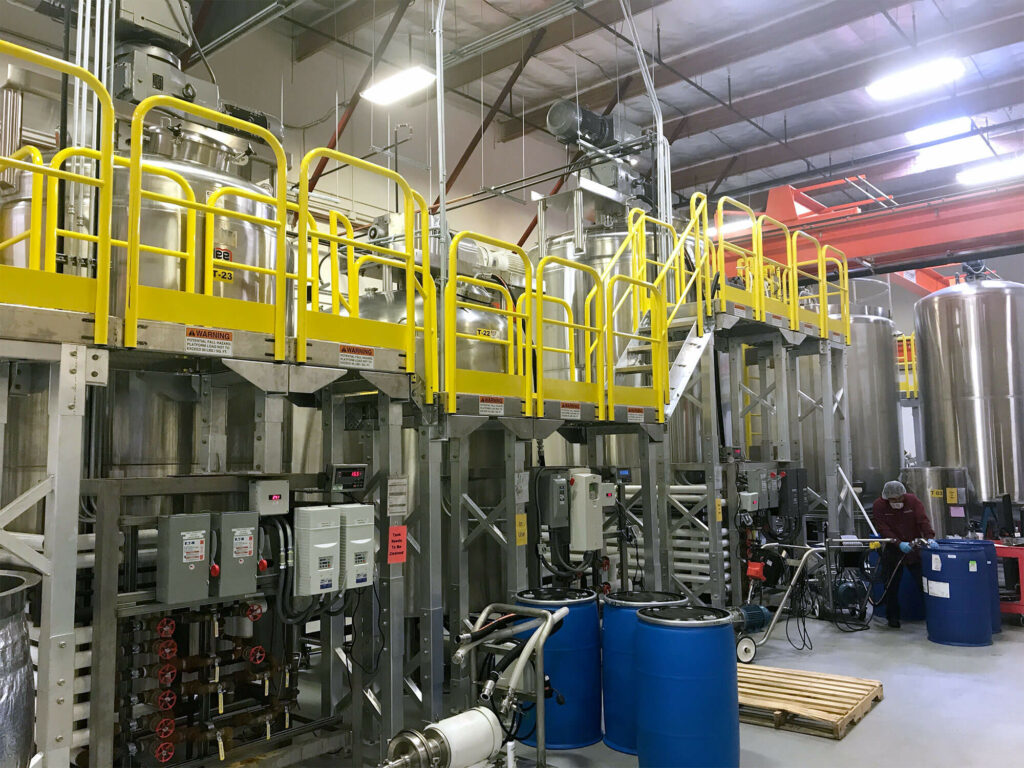
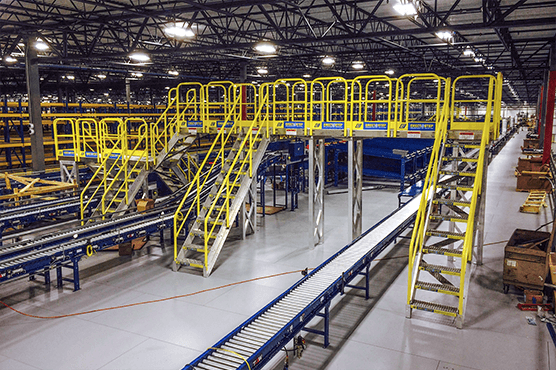
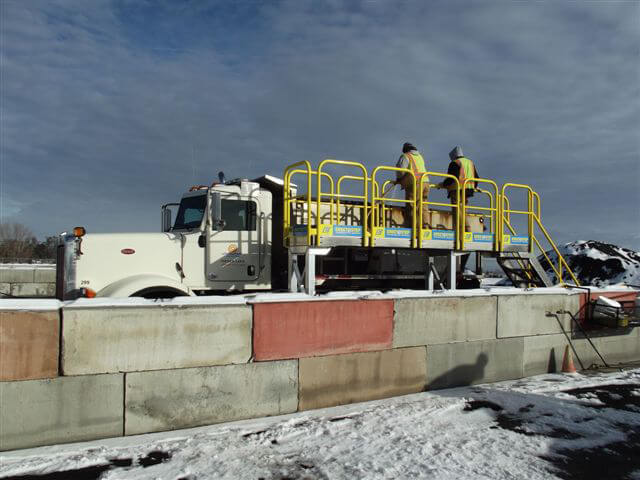
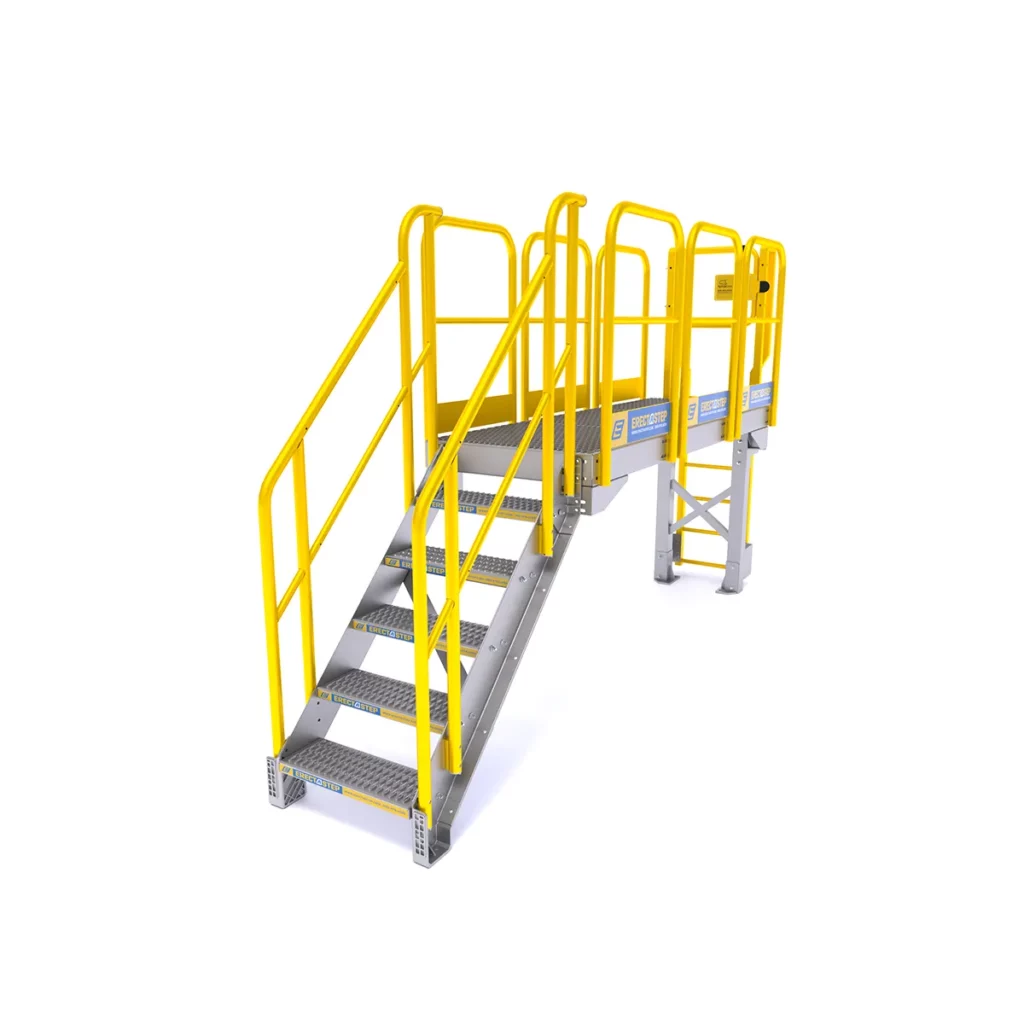
Loading Dock Access Stairs
Loading dock access stairs, designed for safety, provide workers with safe access to loading docks, reducing the risk of severe injuries while unloading cargo. These stairs are particularly beneficial in warehouses, distribution centers, and any building with loading docks, making workers’ movement safe and easy by offering them proper channels to follow.
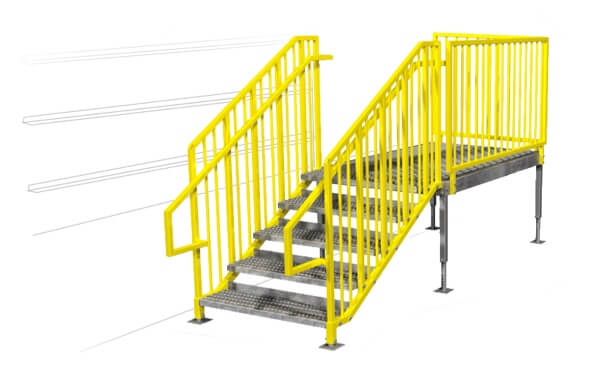
Each of these specialized stair configurations addresses specific needs in industrial environments, ensuring safety, compliance, and operational efficiency. By selecting the appropriate stair configuration, facilities can enhance their overall safety and productivity.
Applications
Industrial stair configurations have diverse applications across various industries. In aerospace, these stairs provide safe access to aircraft and equipment. In warehouses, they facilitate efficient movement between levels. For equipment access, stairs ensure safe maintenance and operation. Fixed ladders, HVAC access, loading docks, roof access, maintenance platforms, tank farms, and vehicle access are other key applications, each benefiting from specialized stair configurations designed to meet specific needs and safety standards.
Conclusion
Choosing the right industrial stair configuration is vital for ensuring safety, compliance, and efficiency in the workplace. As it is said, “Stairs designed with safety and compliance in mind are vital for any industrial setting. They prevent injuries and ensure that workers can perform their tasks efficiently and securely.” By understanding the unique features and applications of each type, businesses can enhance productivity and protect their workforce. Investing in the appropriate stair solutions not only meets regulatory requirements but also fosters a safer and more efficient work environment.
Popular Industrial Stair Configurations
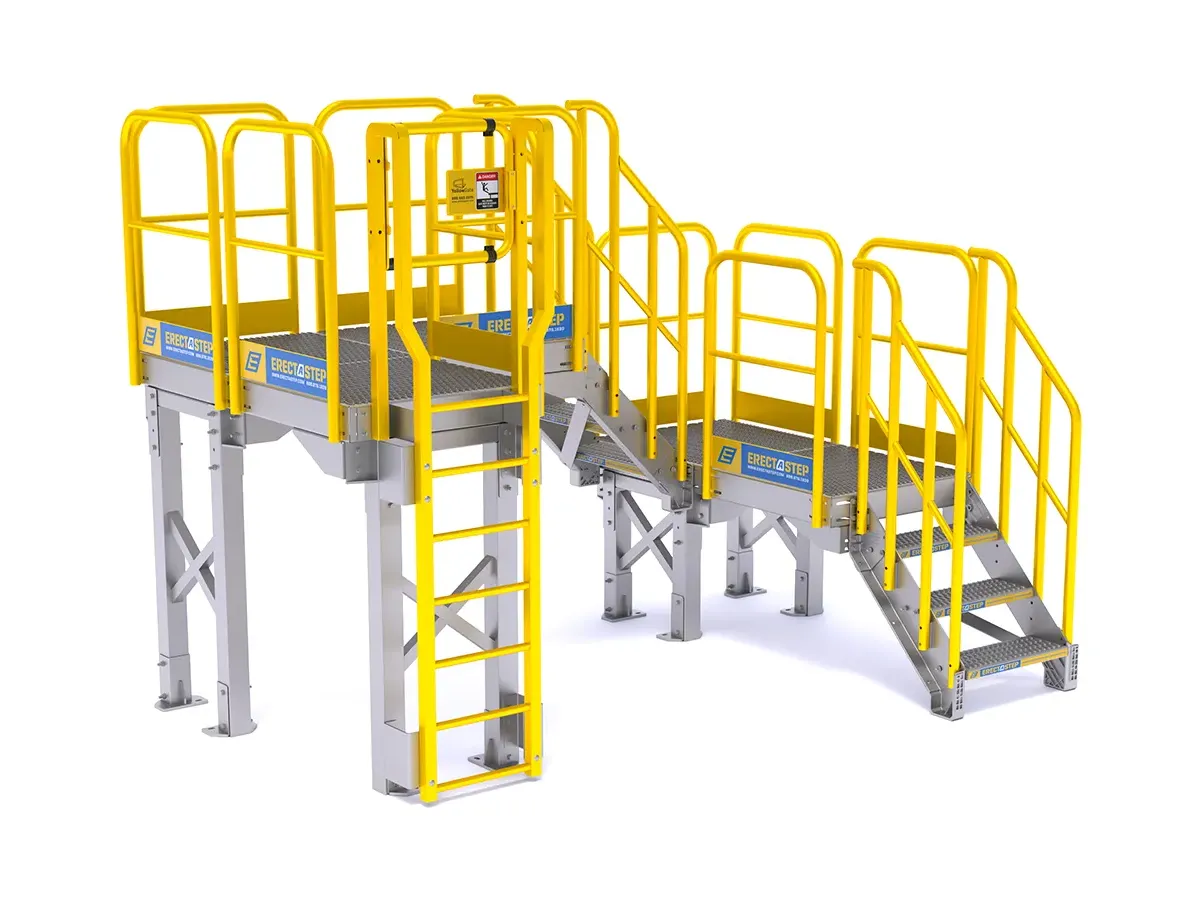
Access Platforms
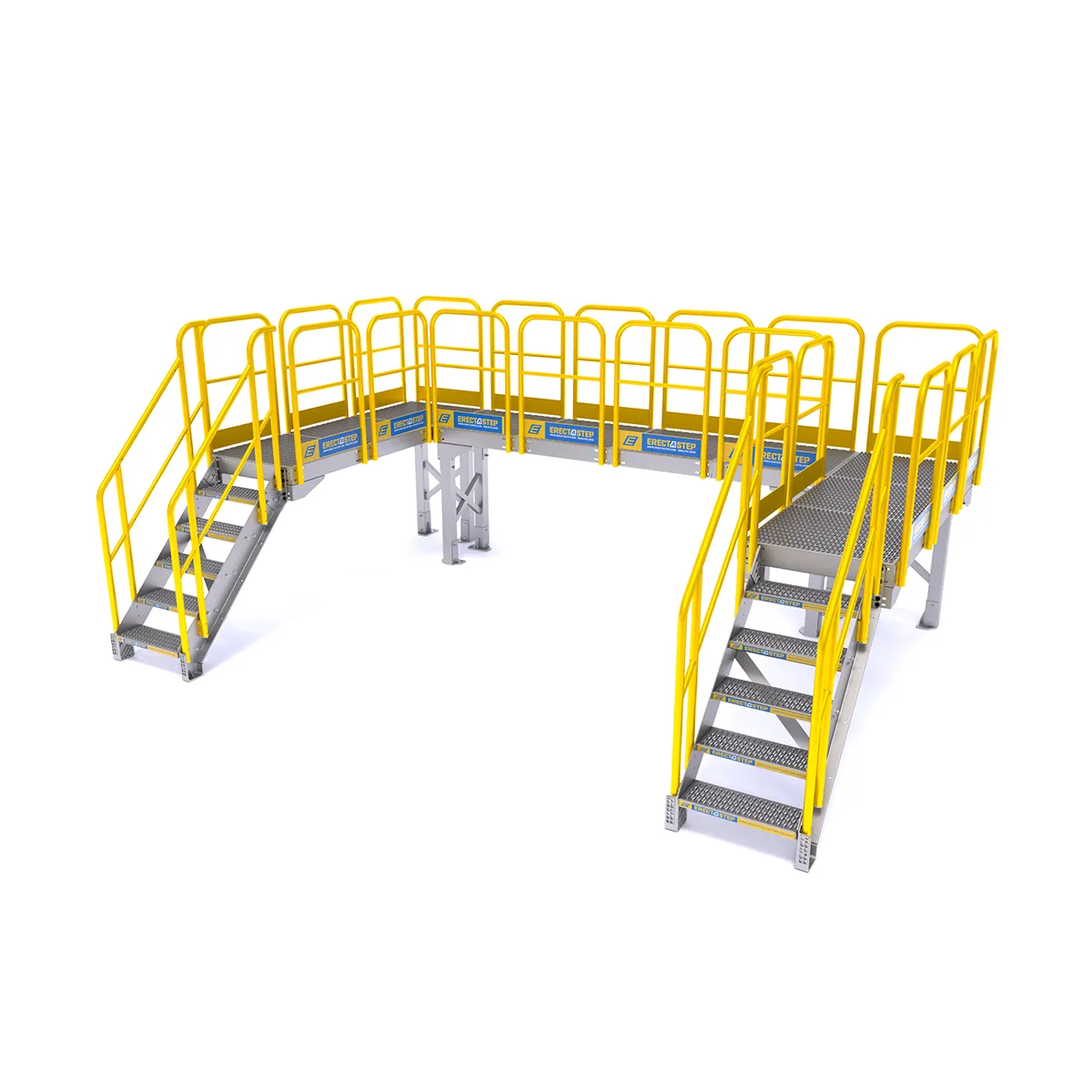
Assembly Line Access Stairs
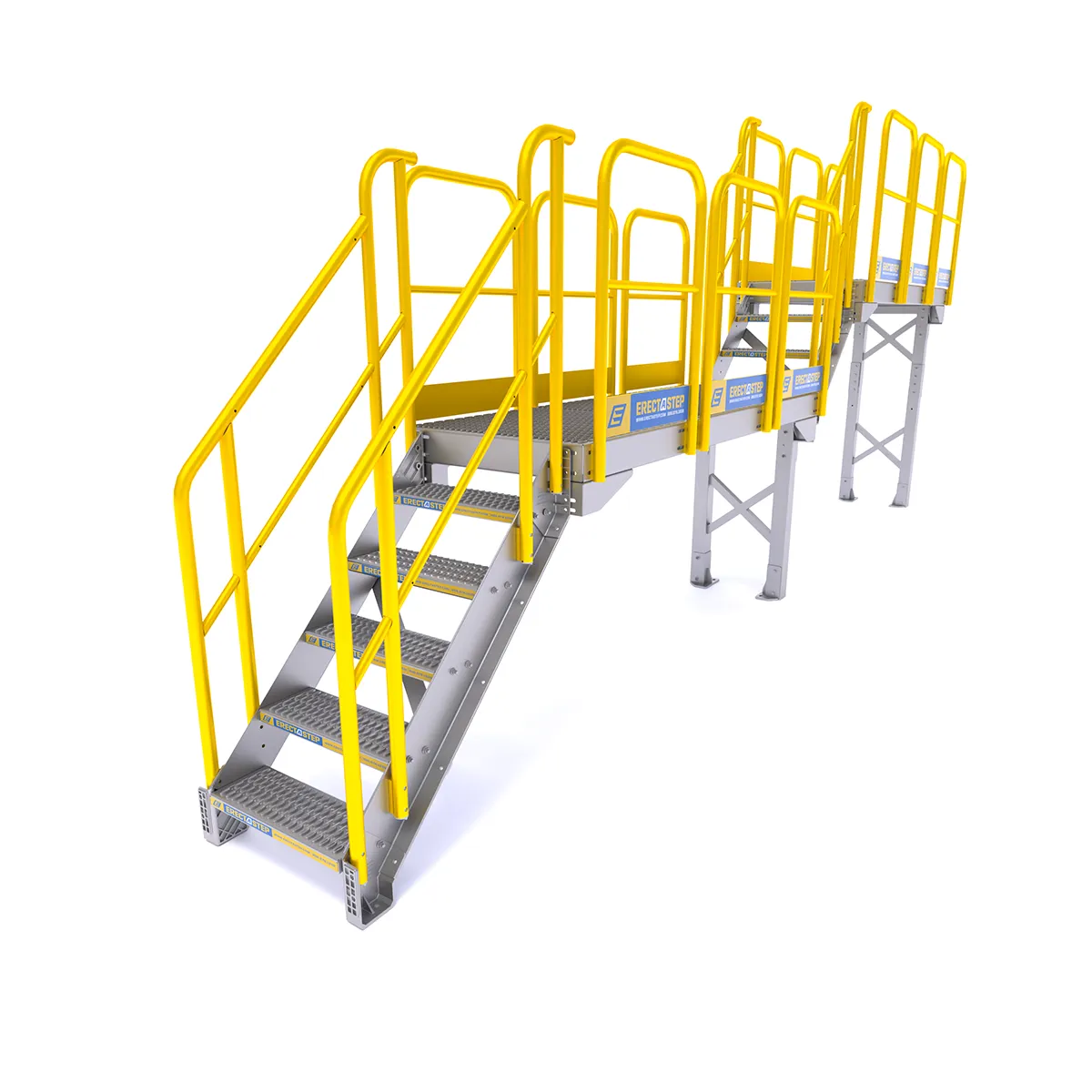
Catwalk
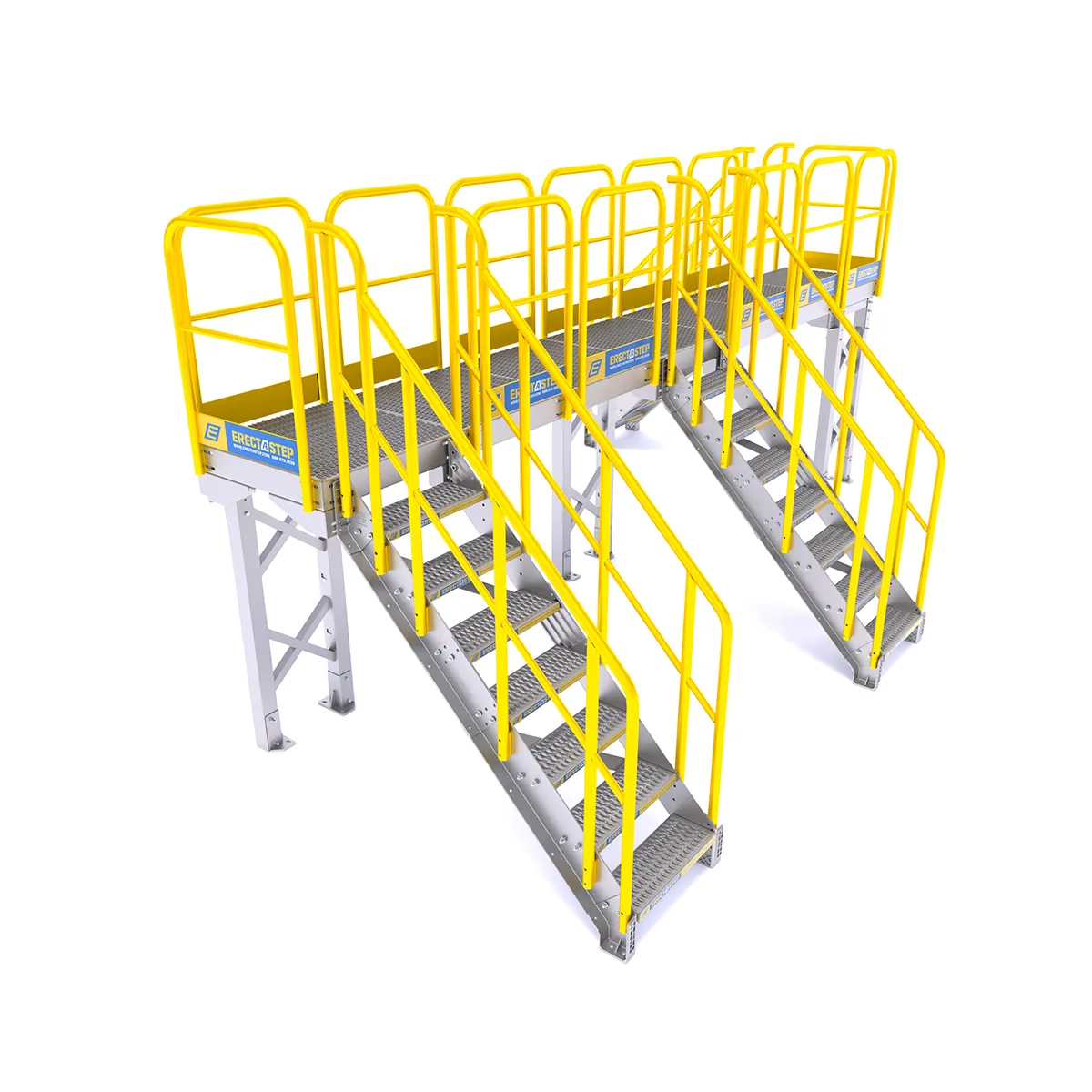
Conveyor Crossovers
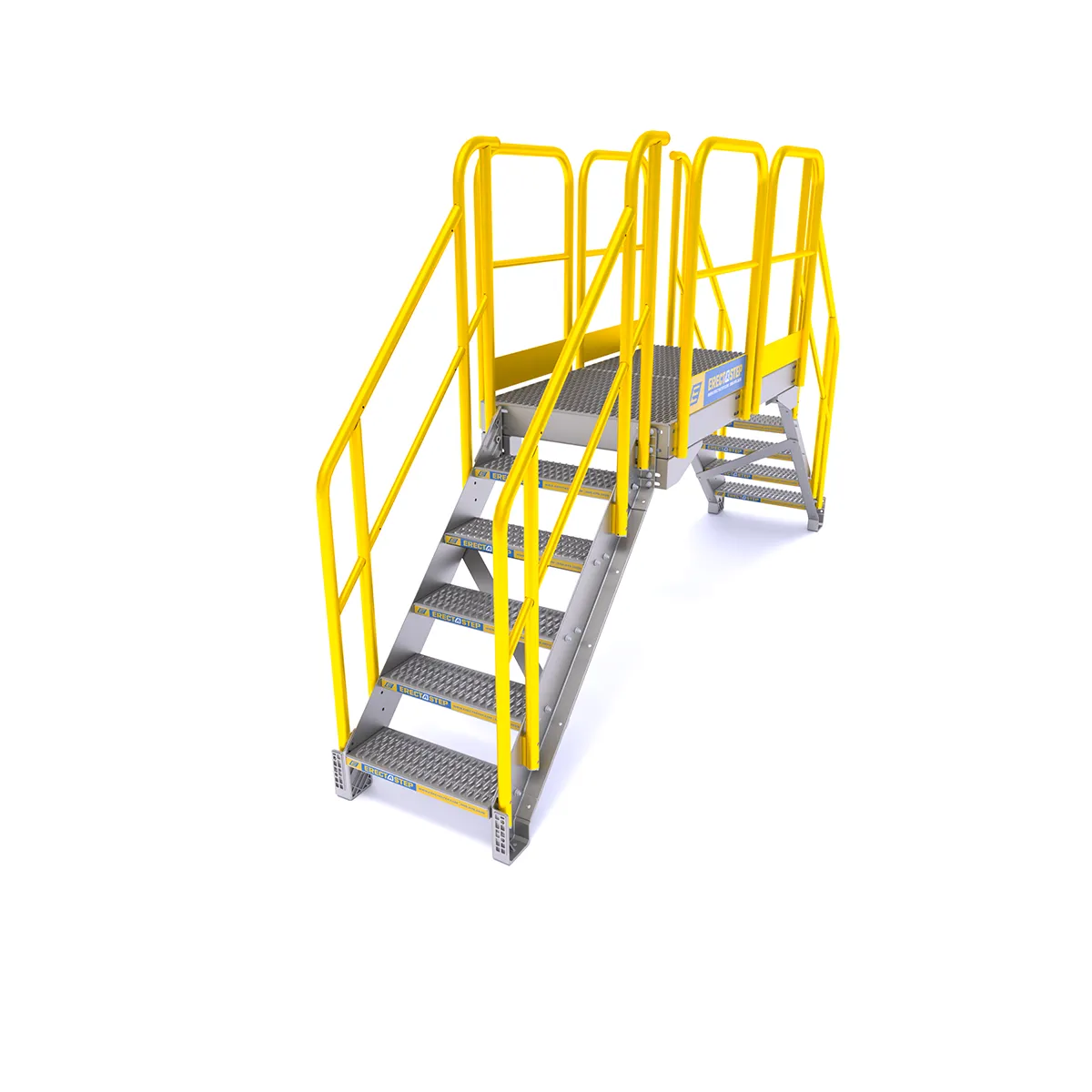
Crossover Stairs
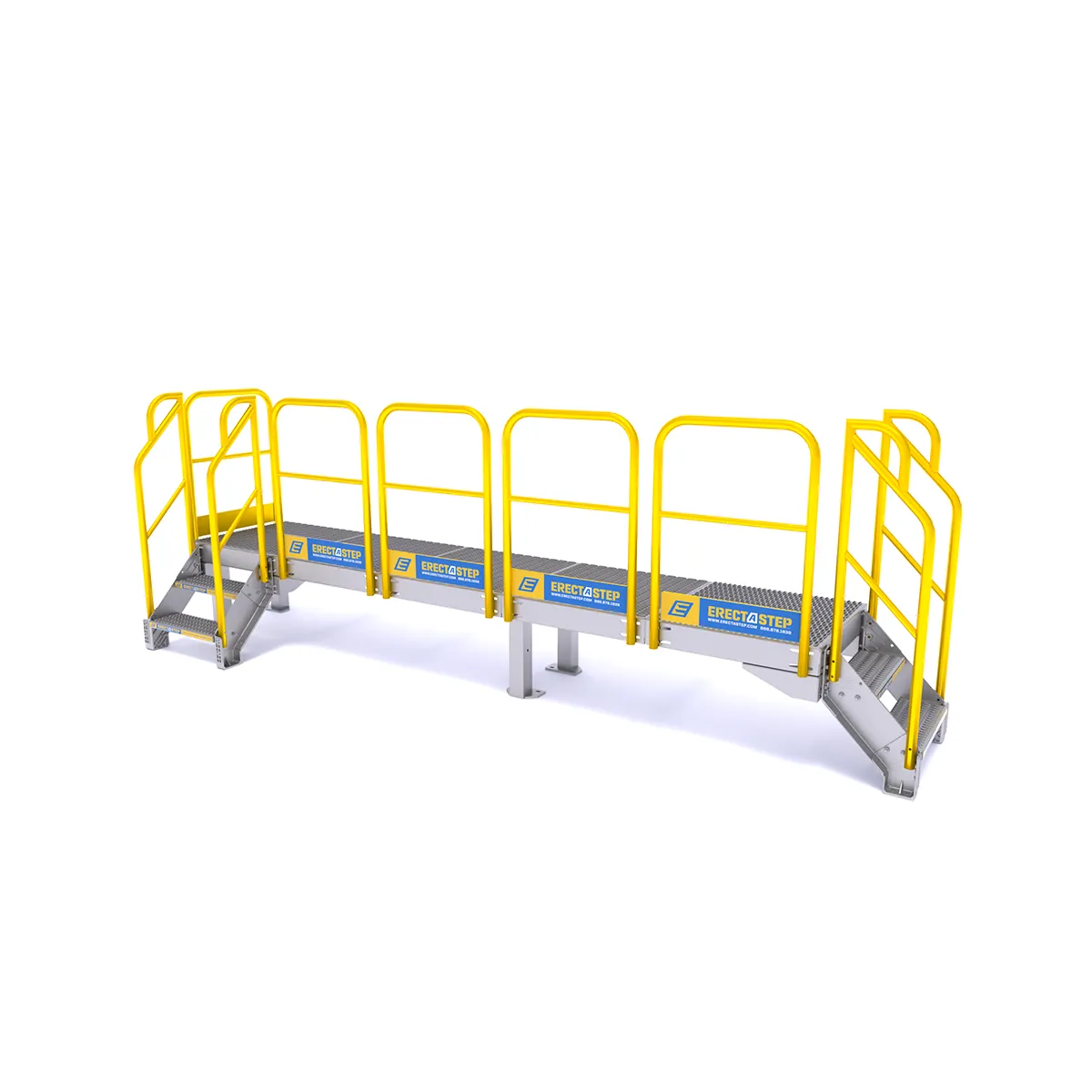
Ergonomic Platform
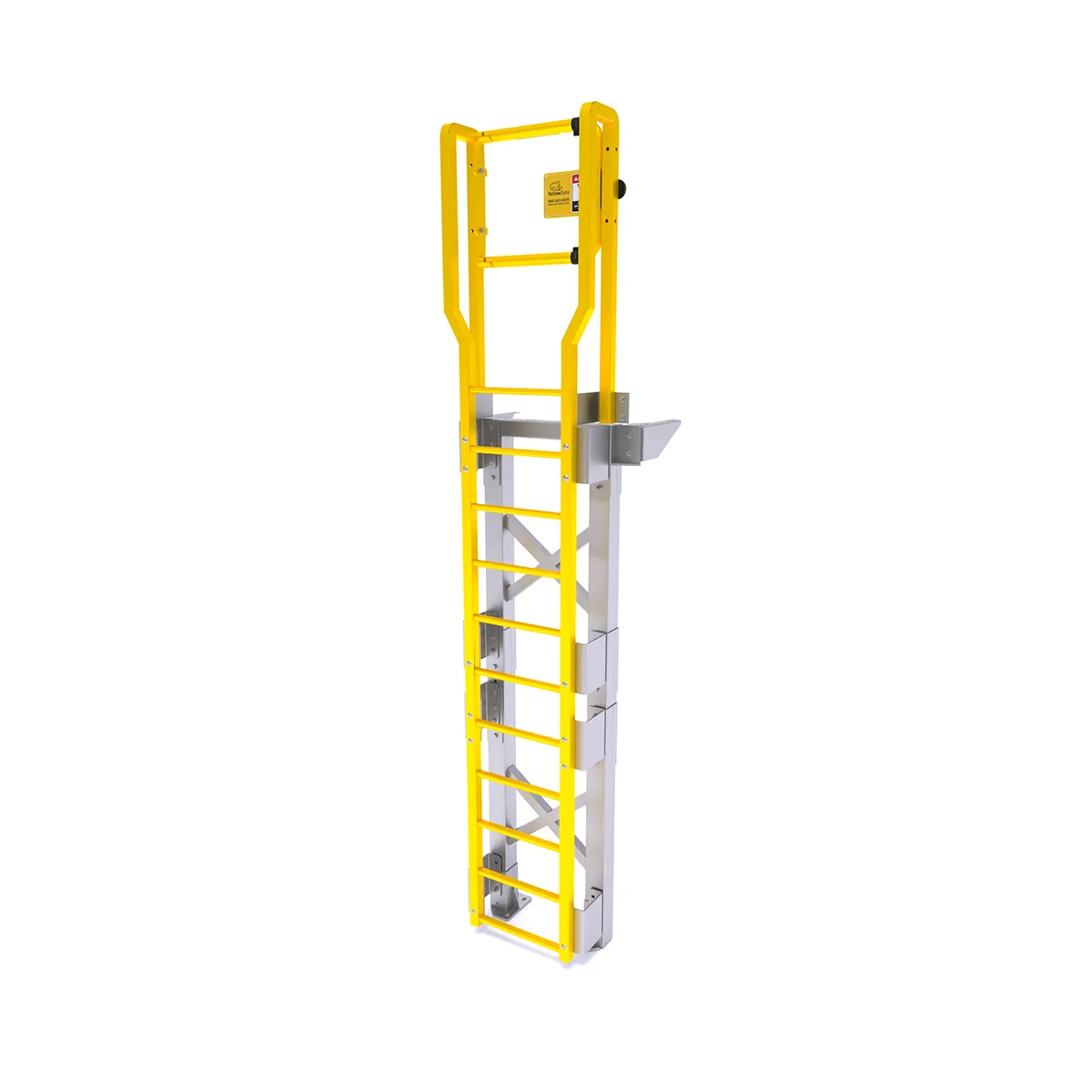
Fixed Ladders
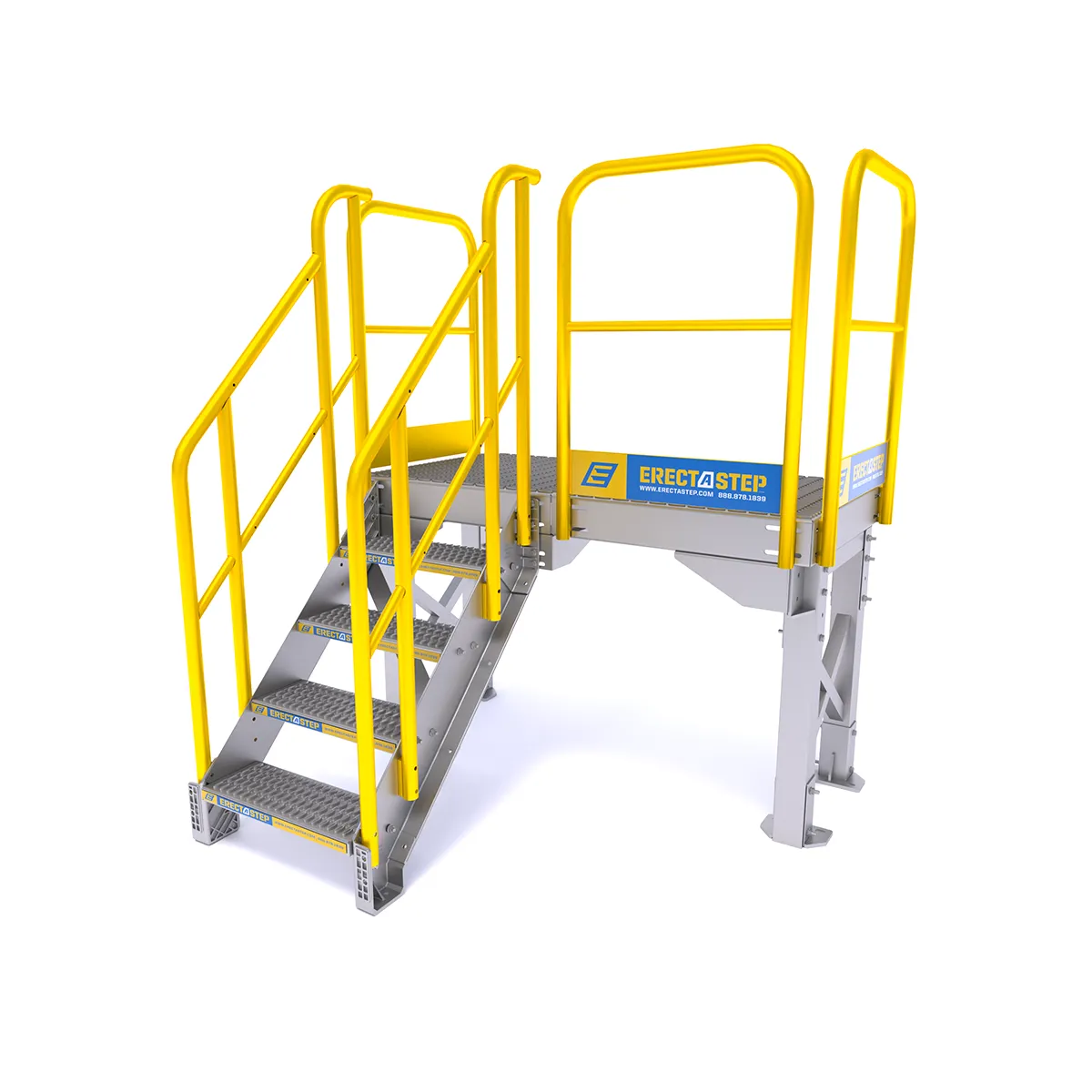
Generators Platforms
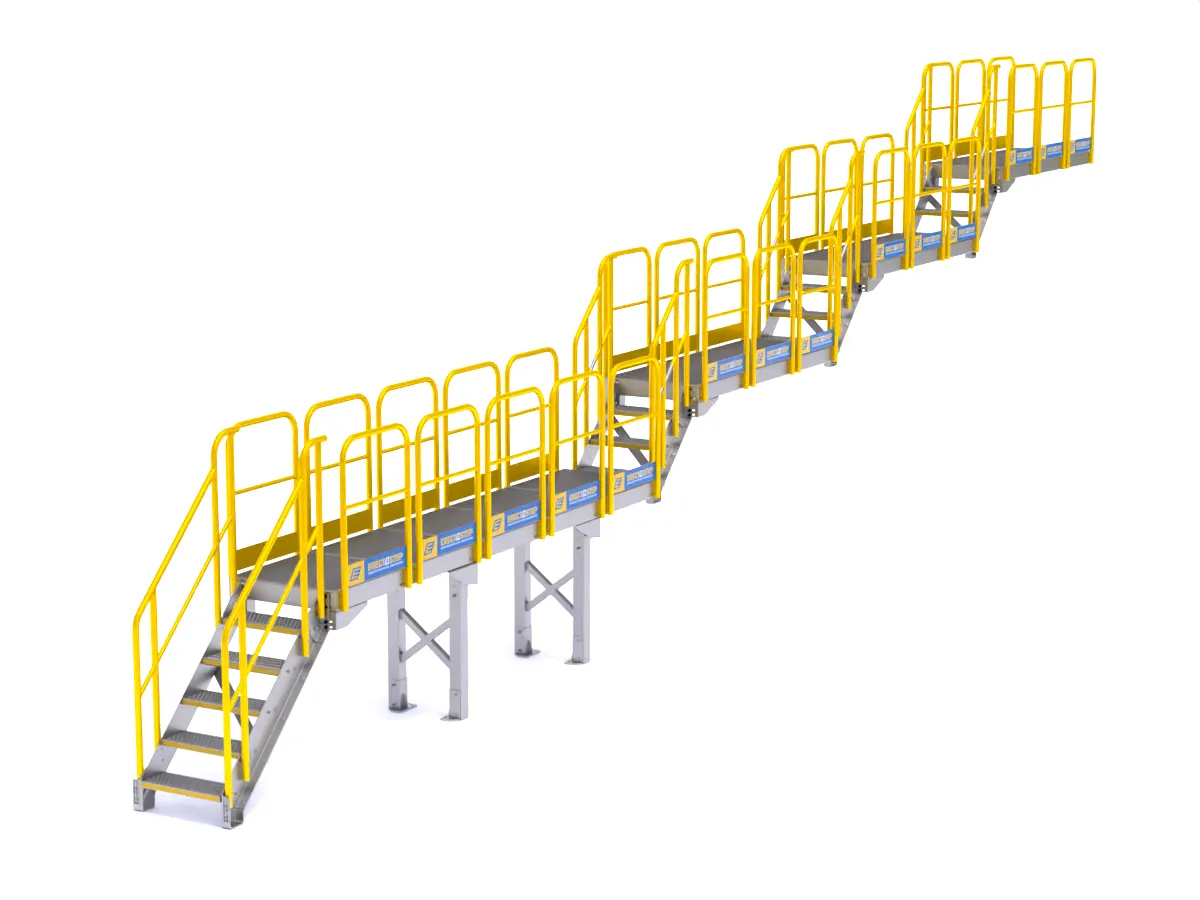
Embankment Stairs

HVAC Platforms
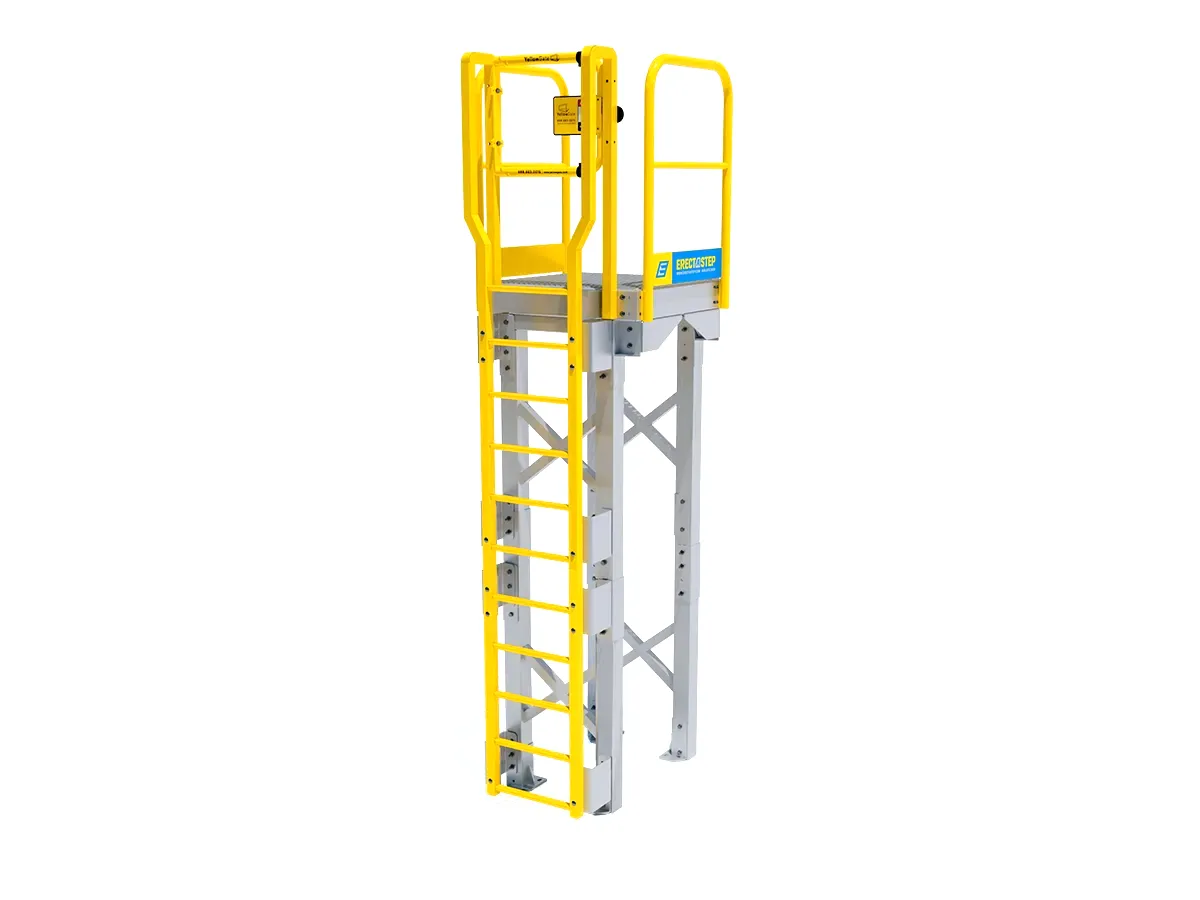
Ladder Platforms

Loading Dock Stairs
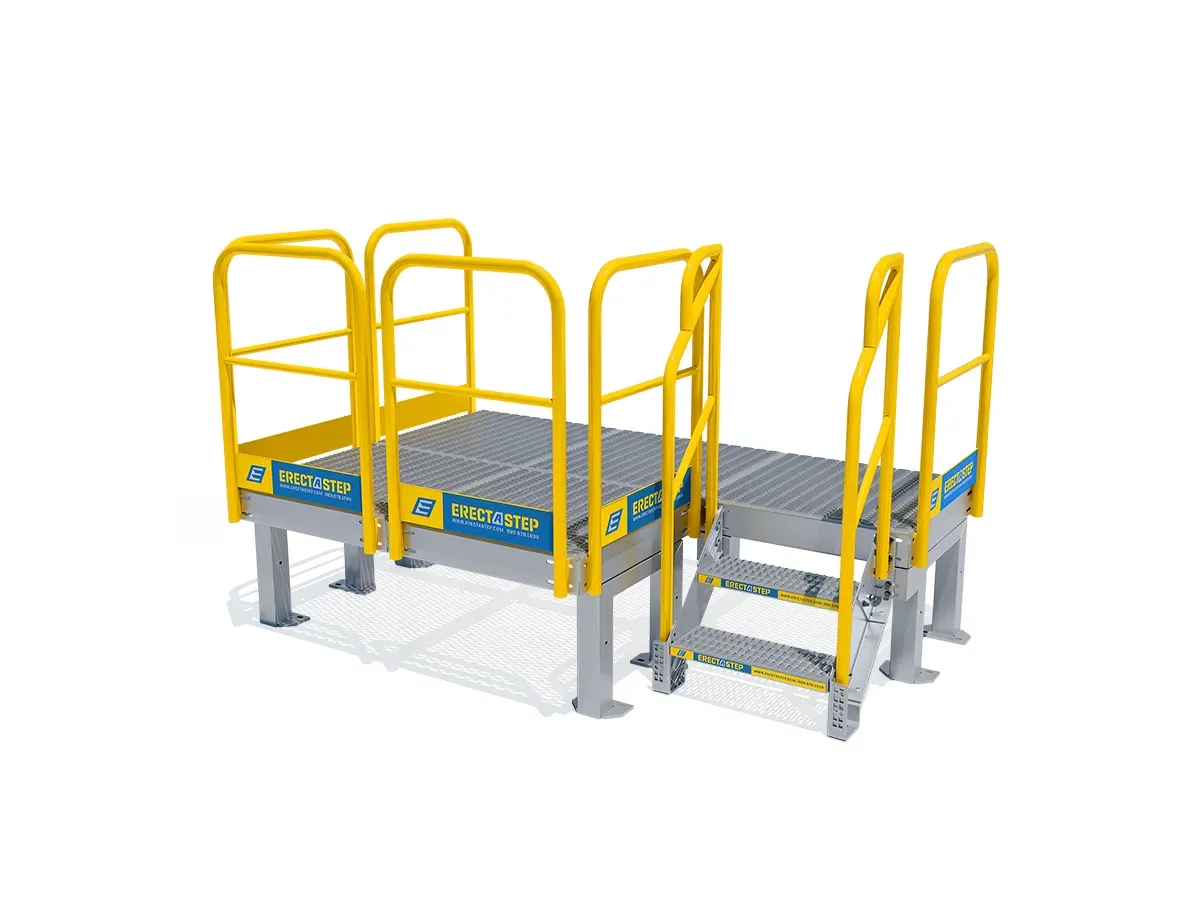
Low-Height Platforms

Maintenance Platforms
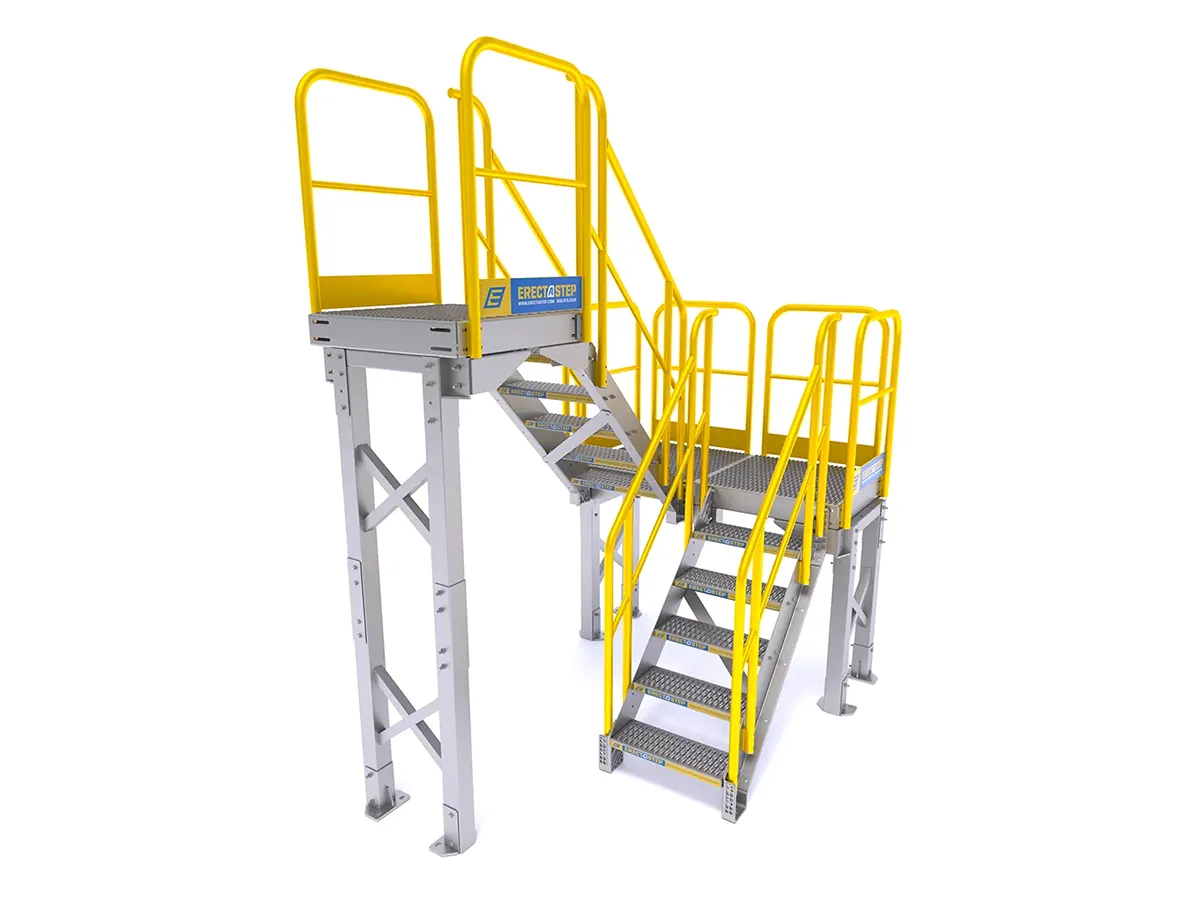
Mezzanine Stairs
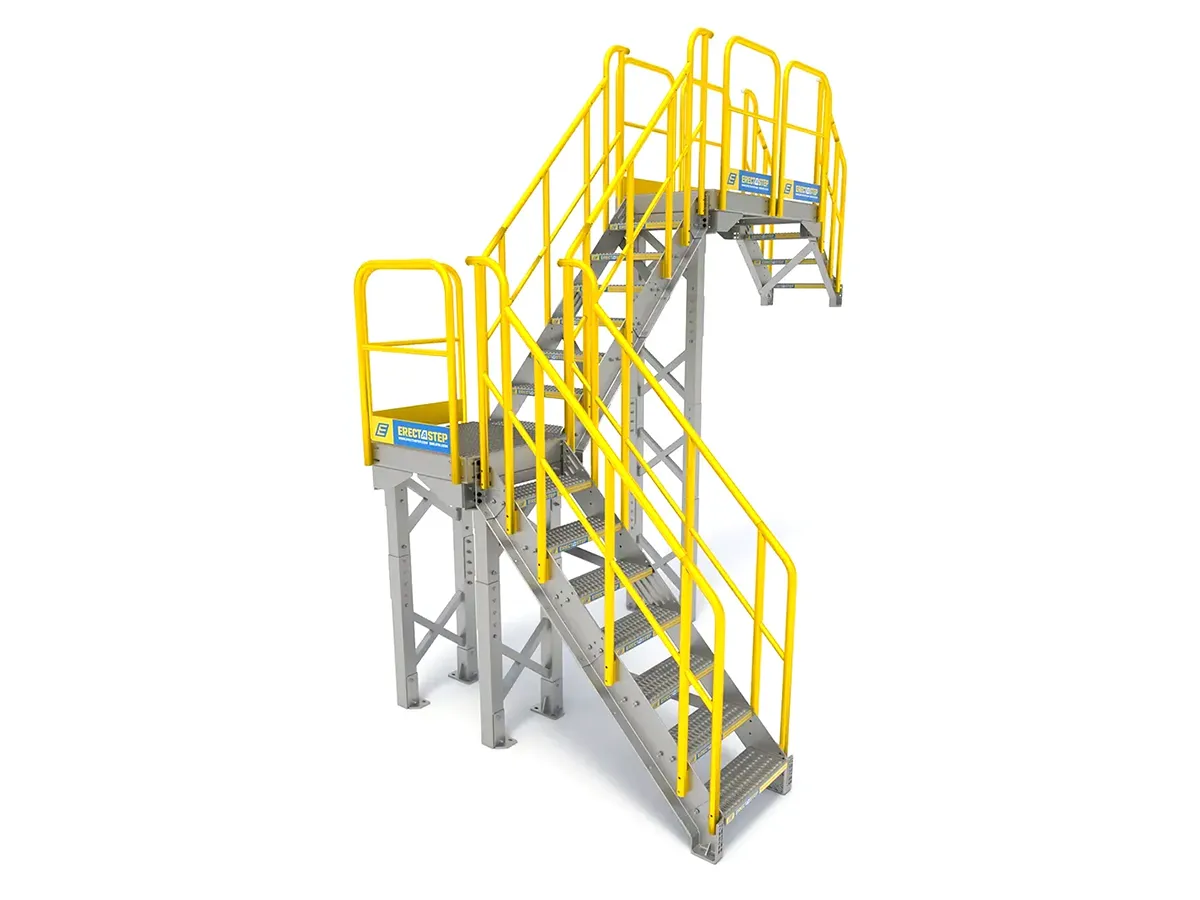
Roof Access Stairs
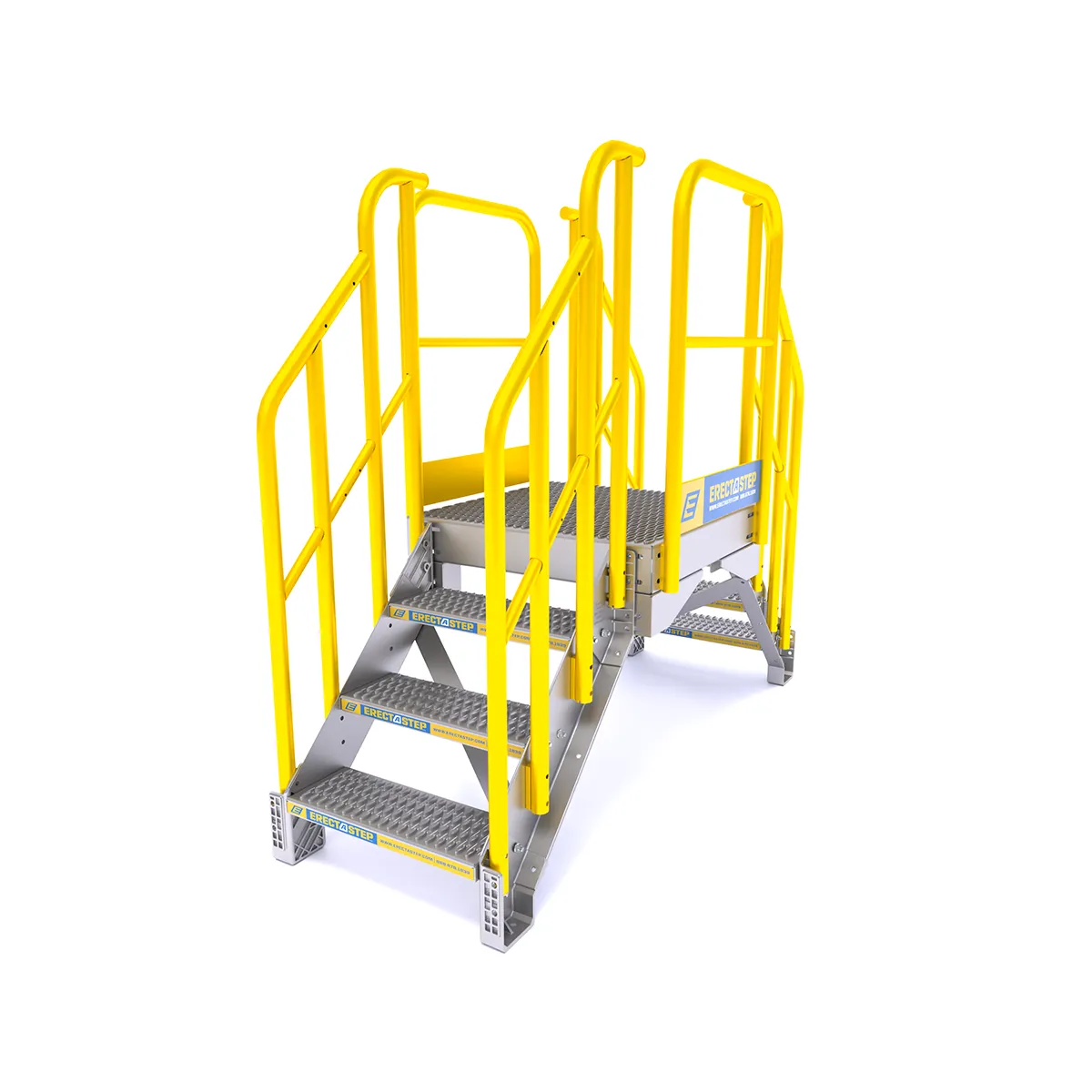
Rooftop Stairs
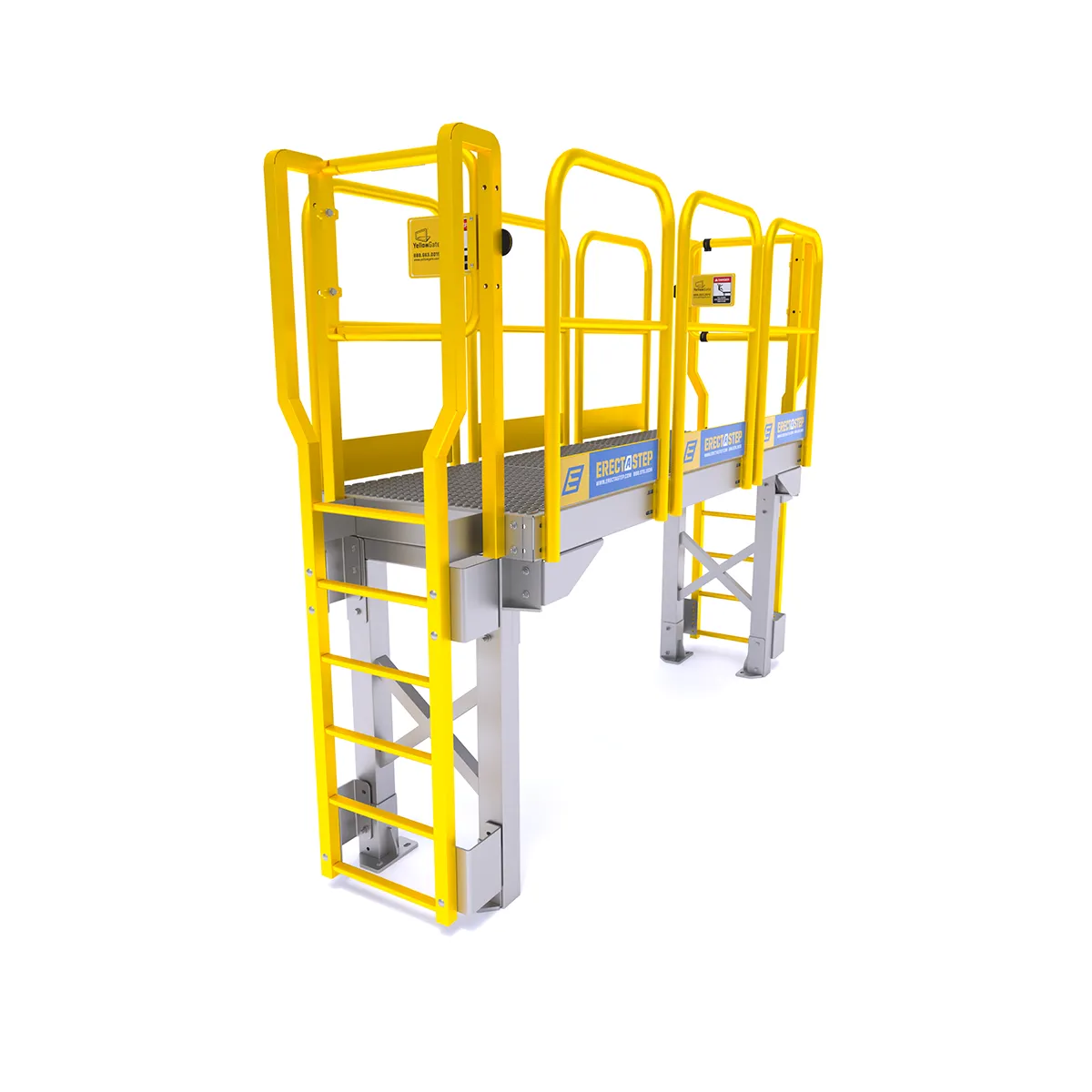
Scaffolding Alternatives
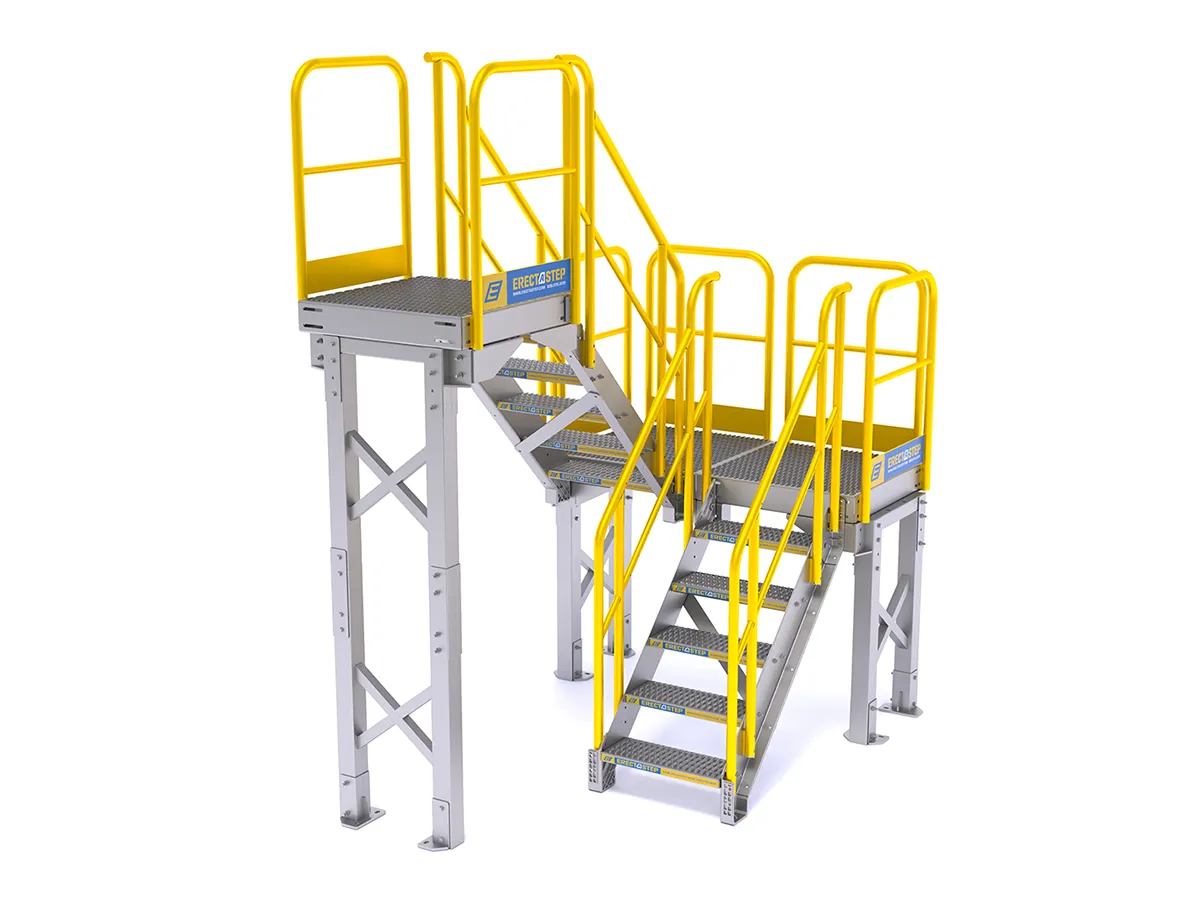
Switchback Stairs
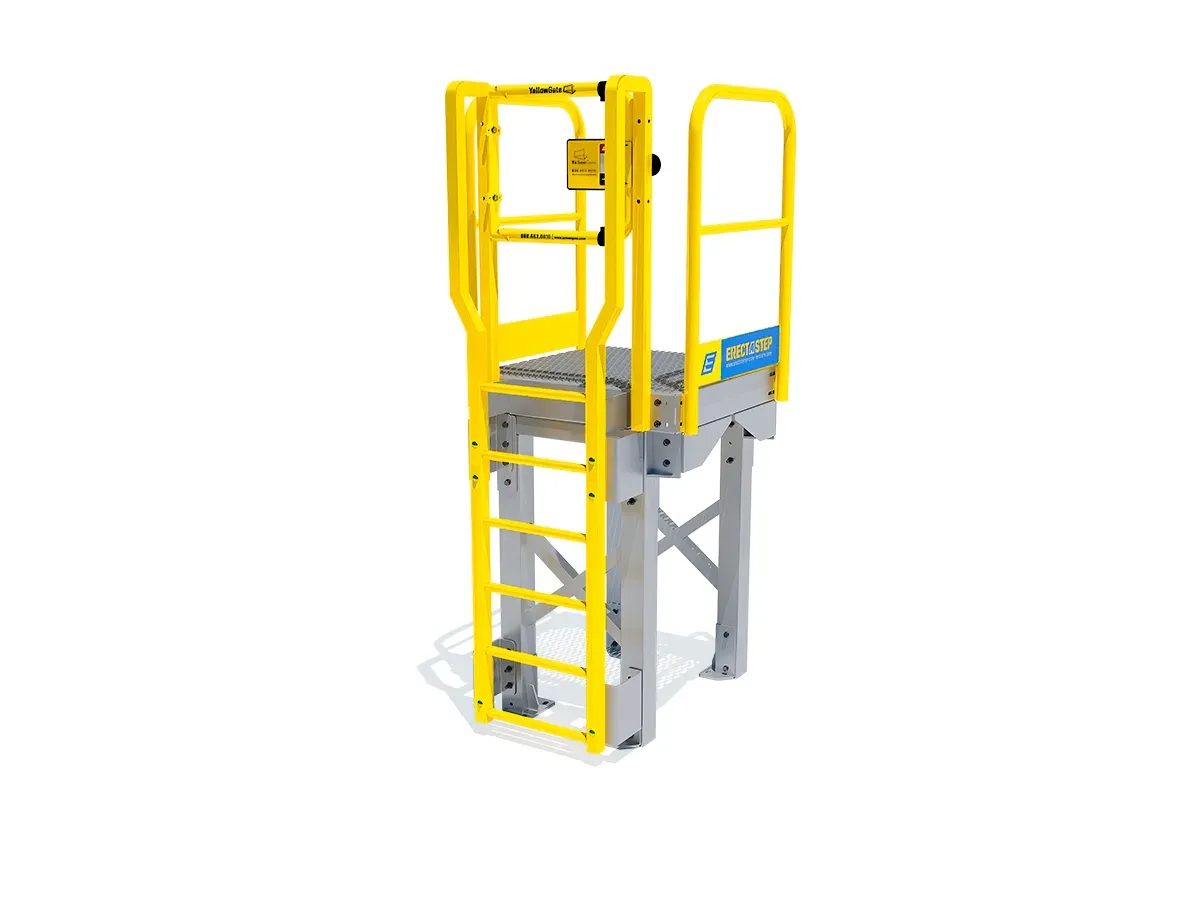
Tank/Valve Access
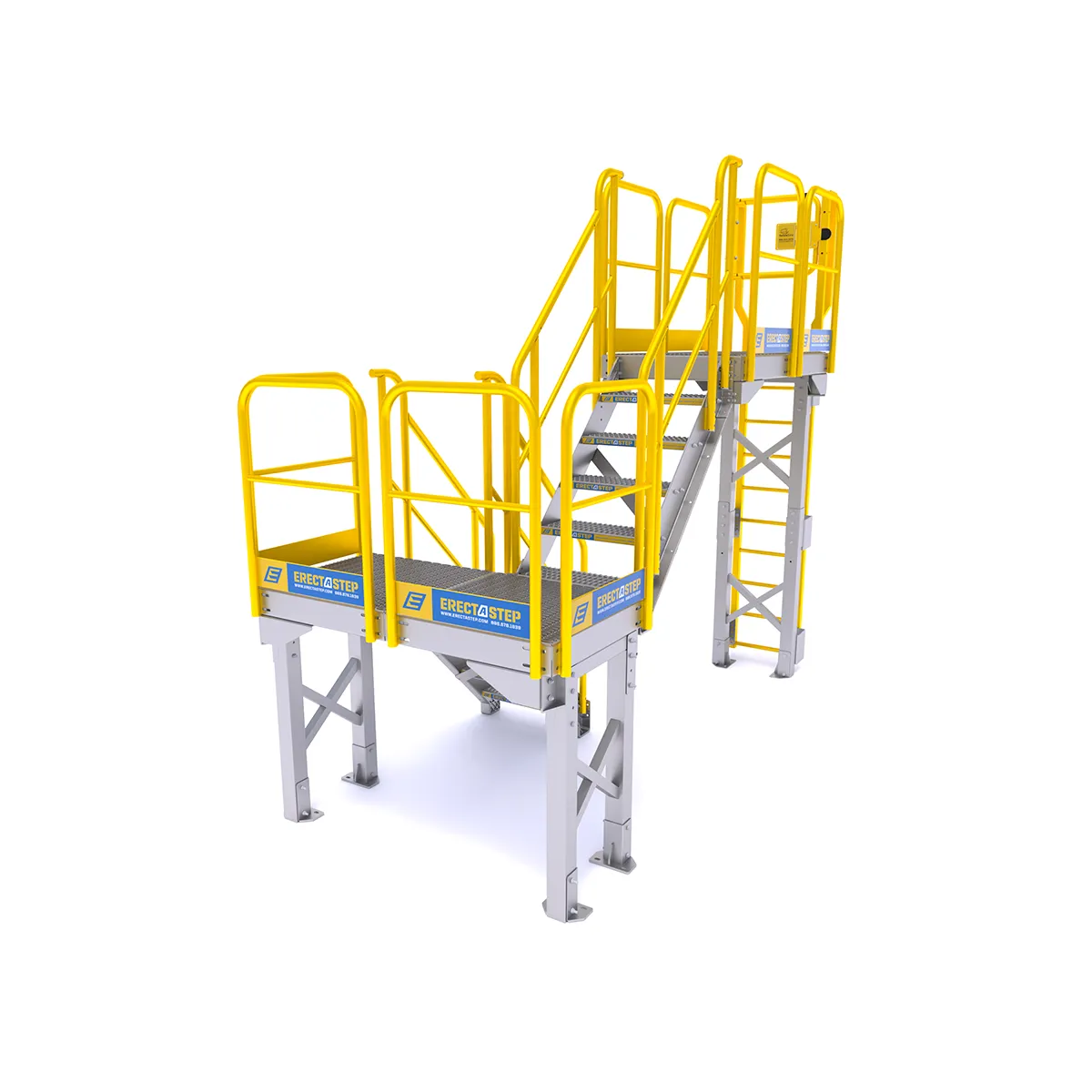
Work Platforms

